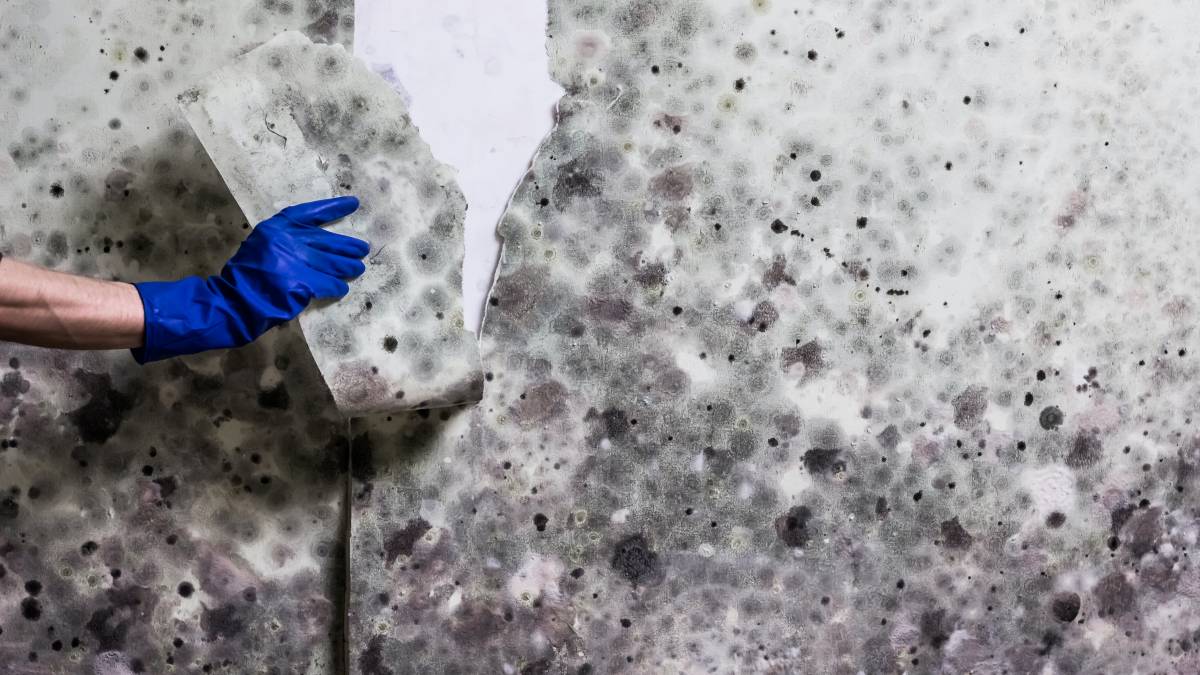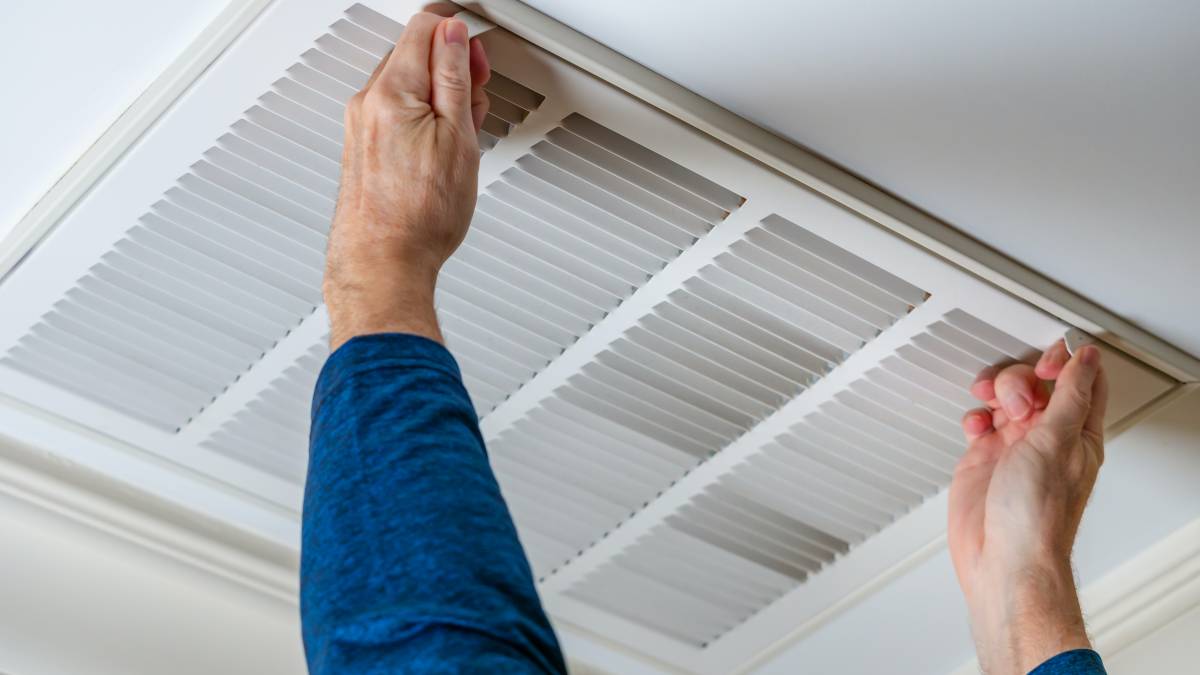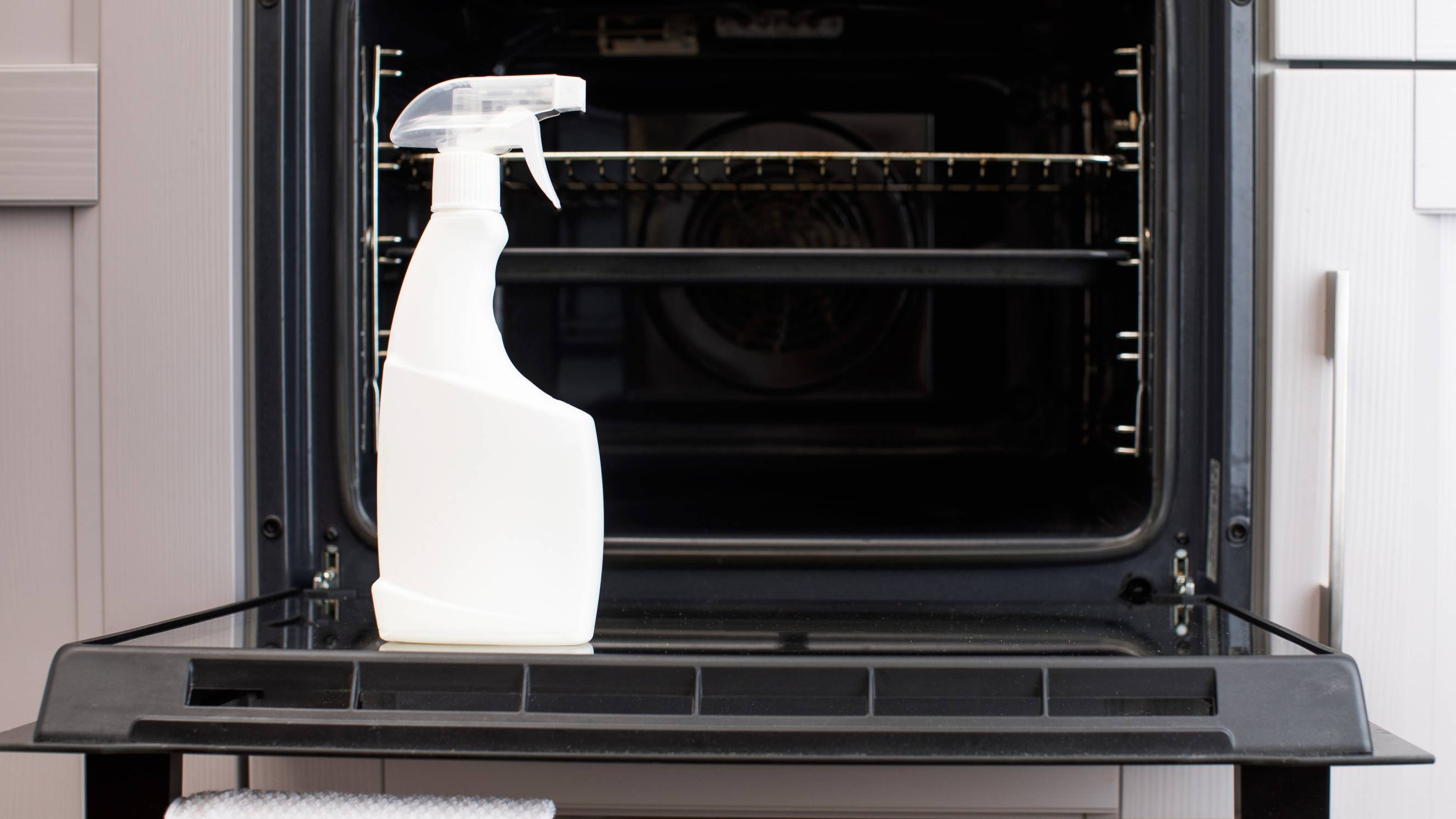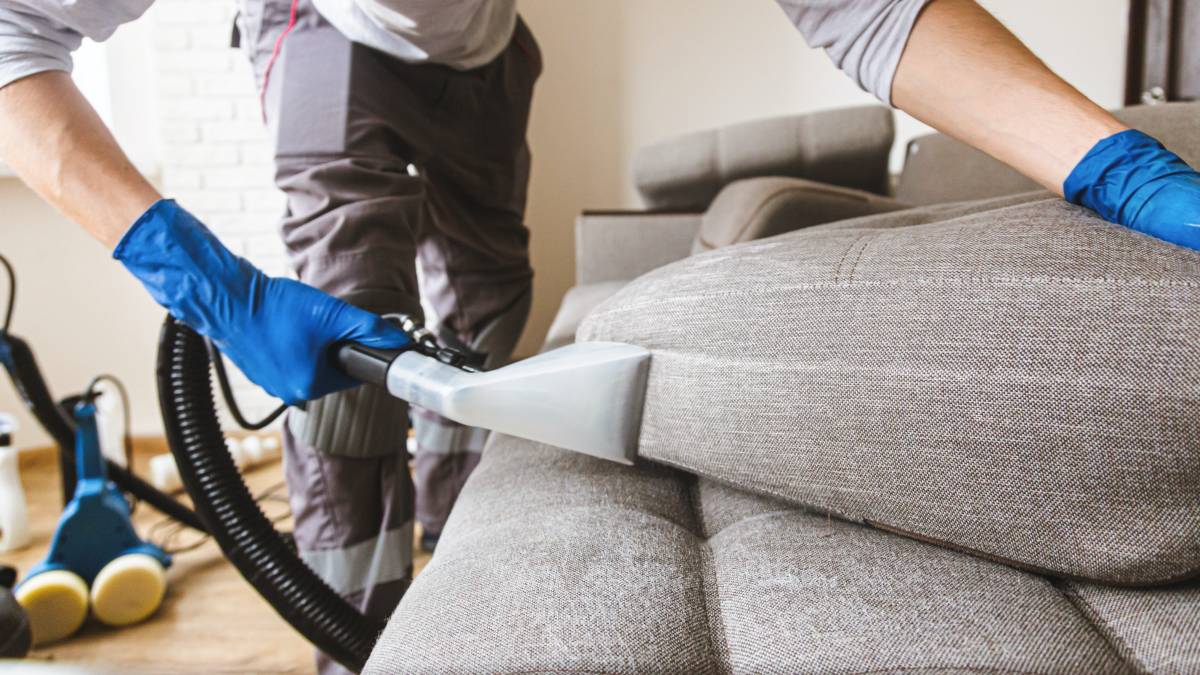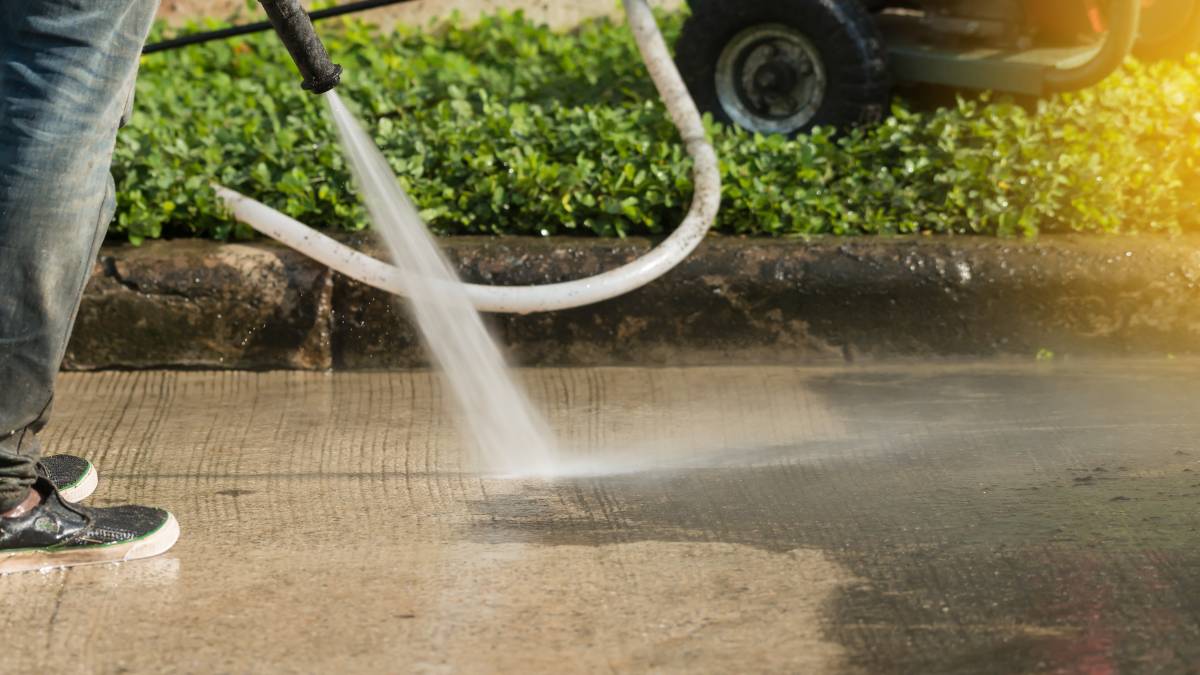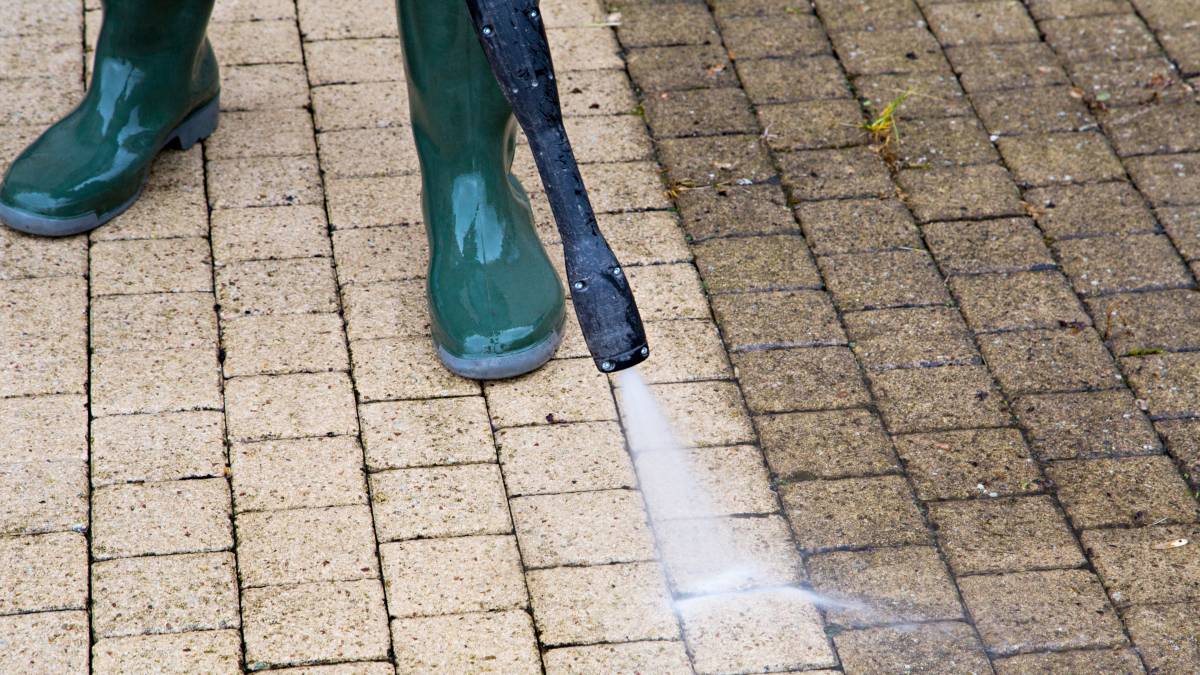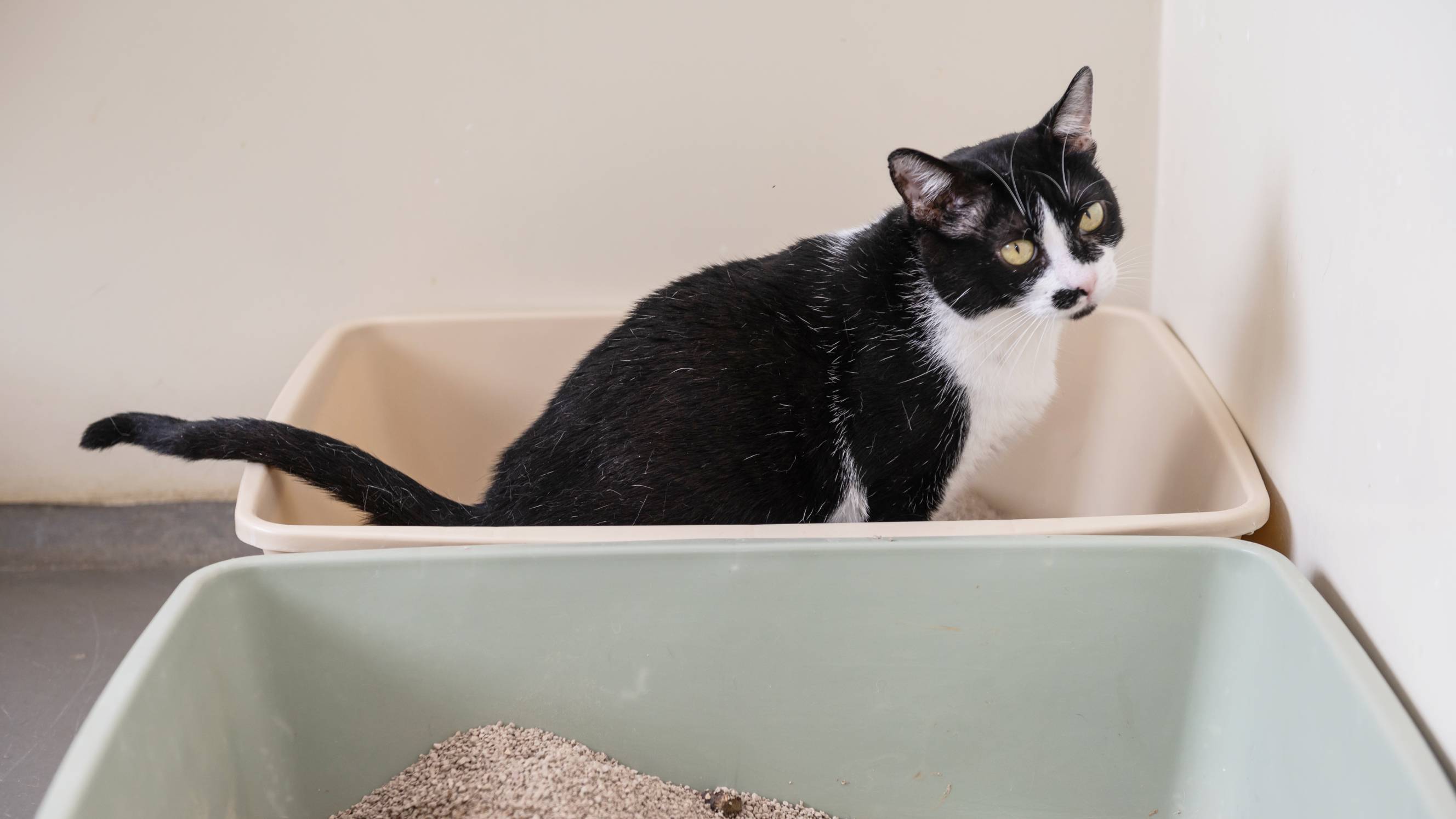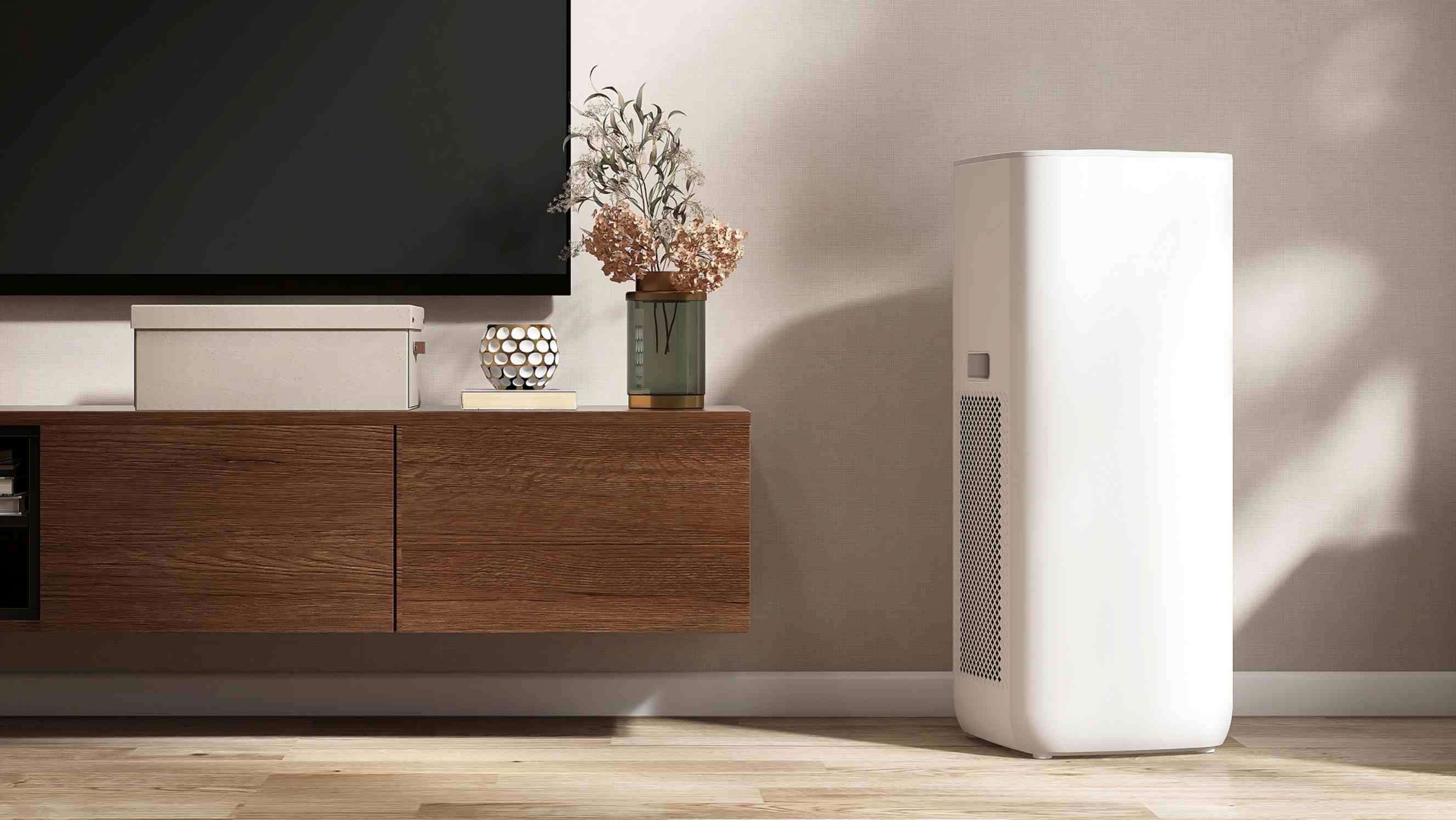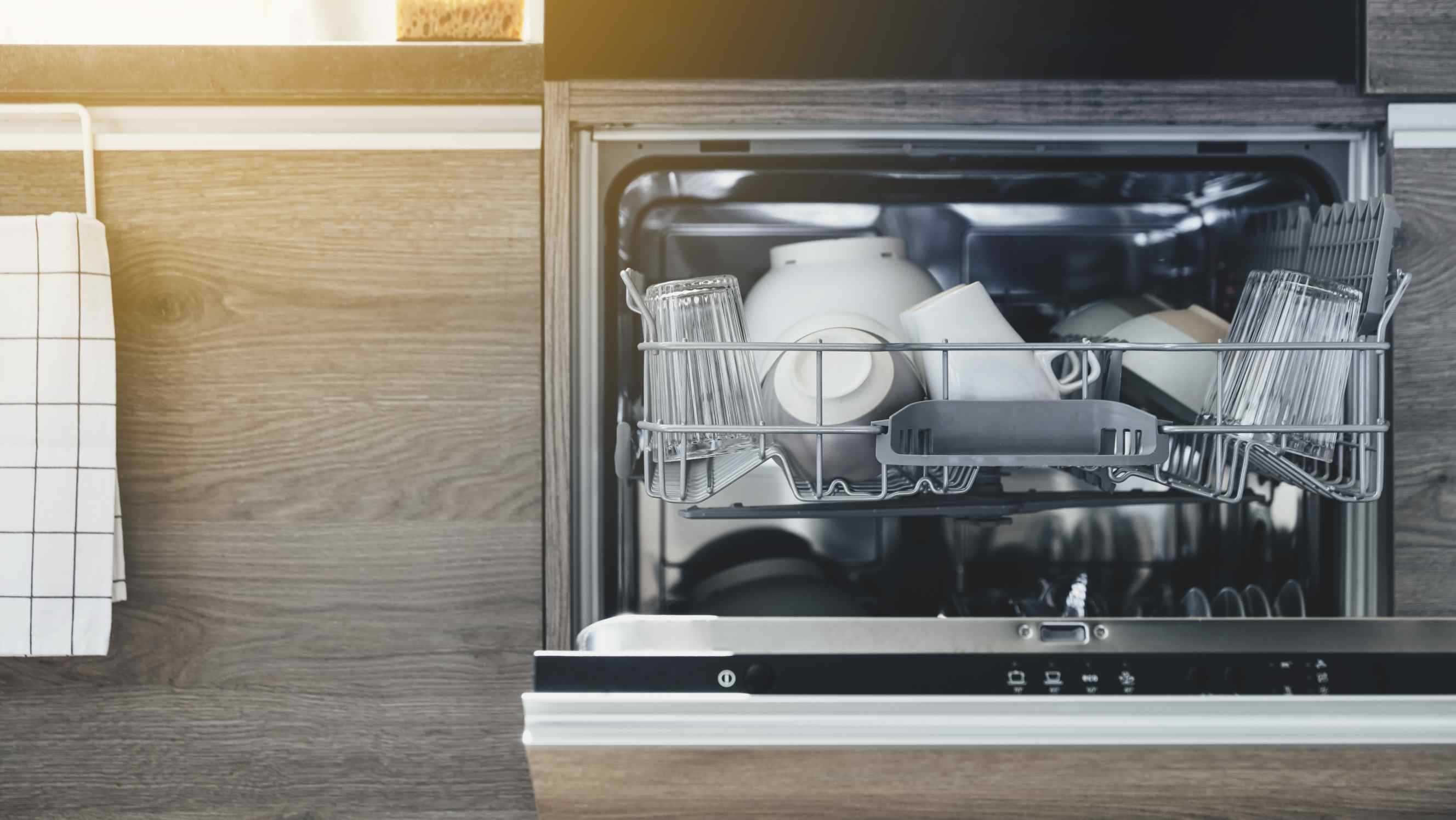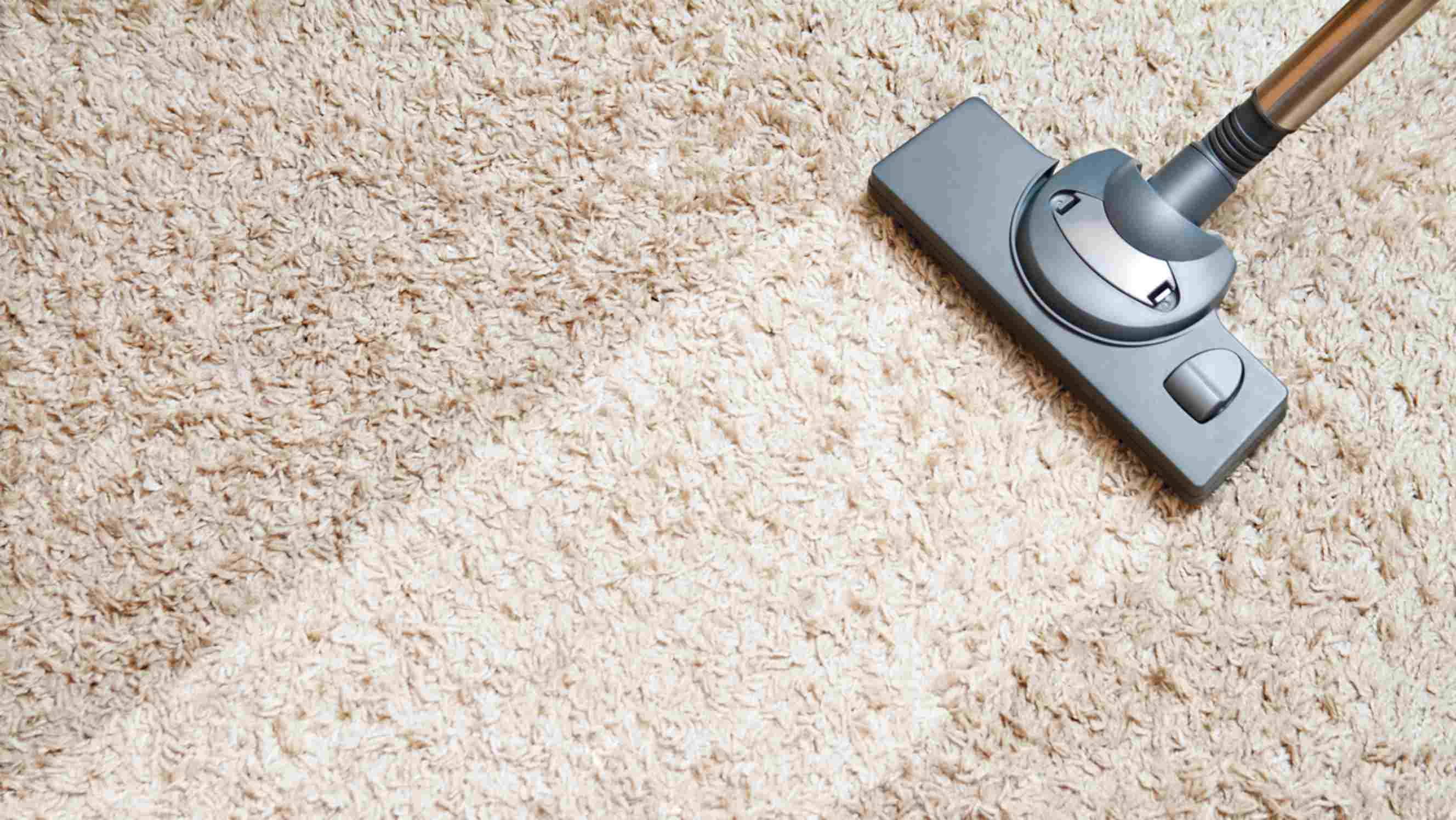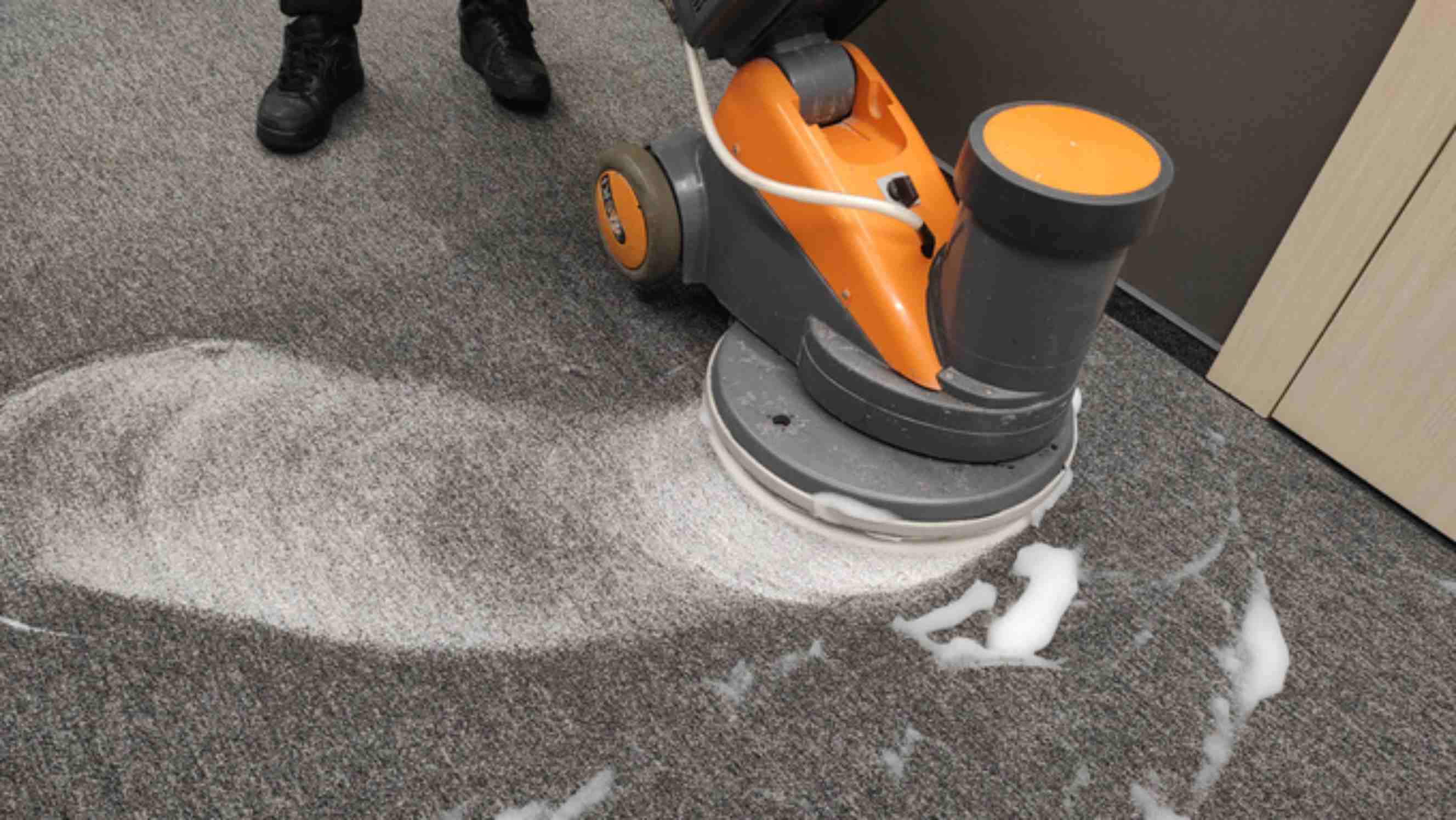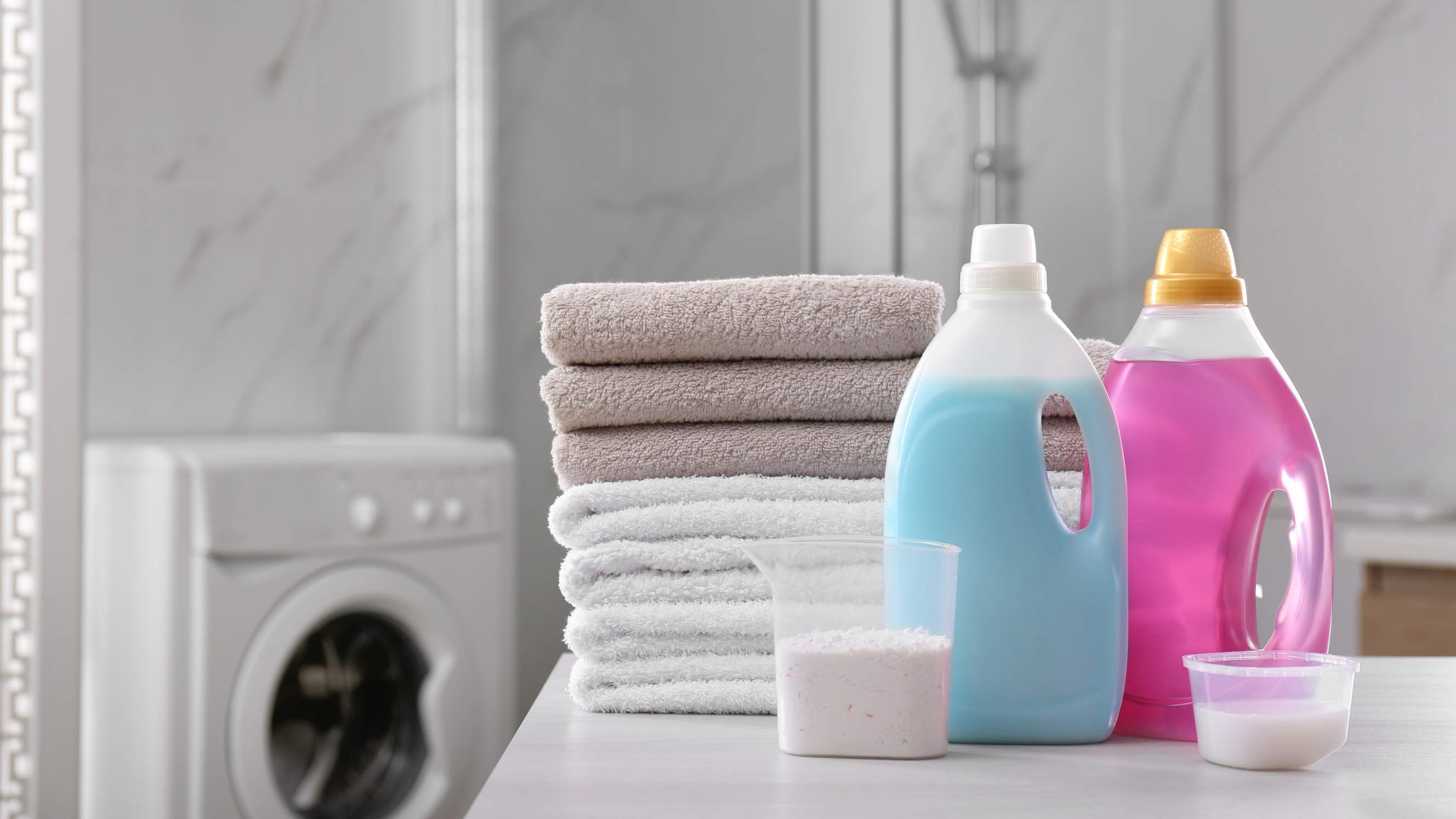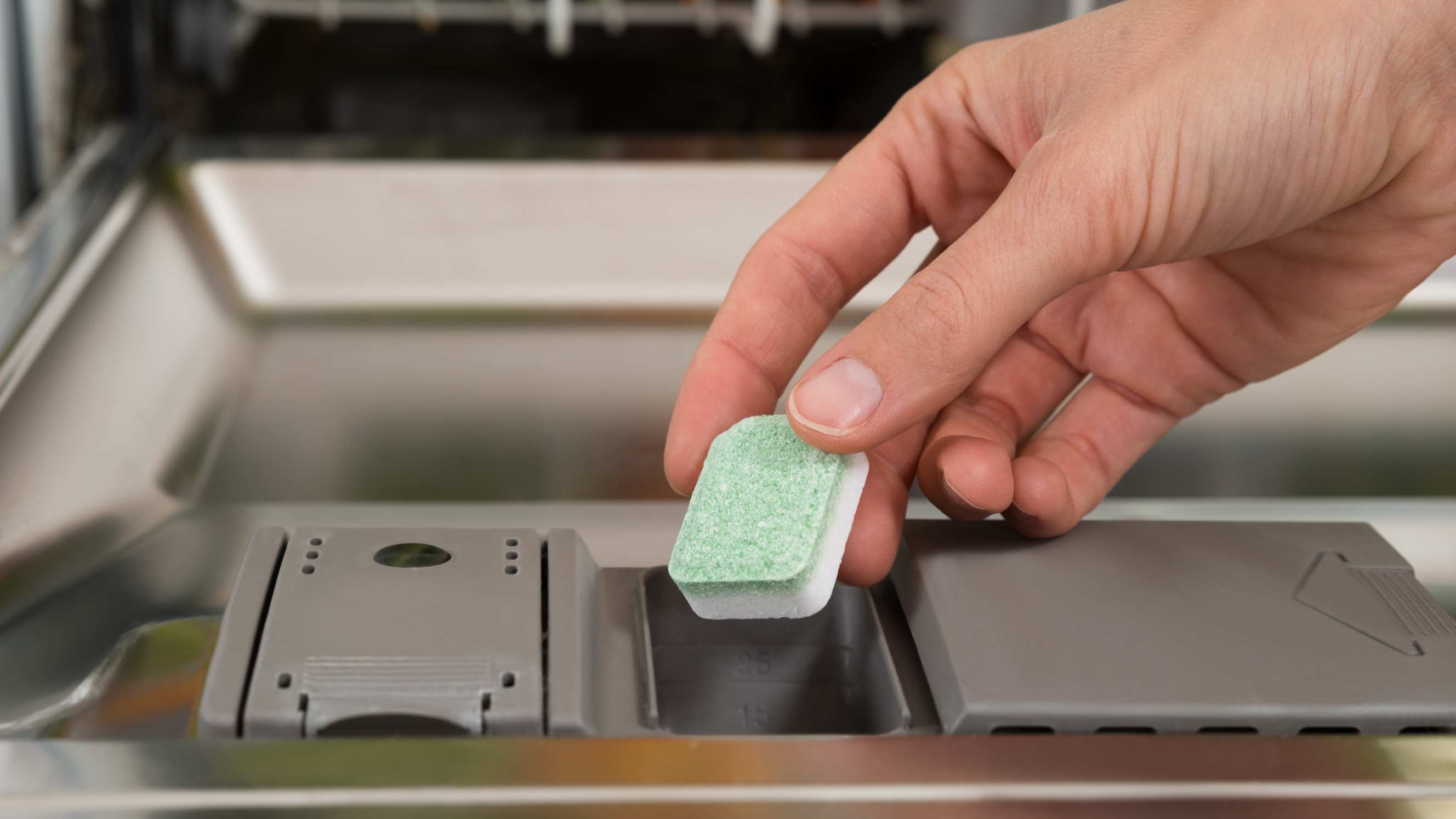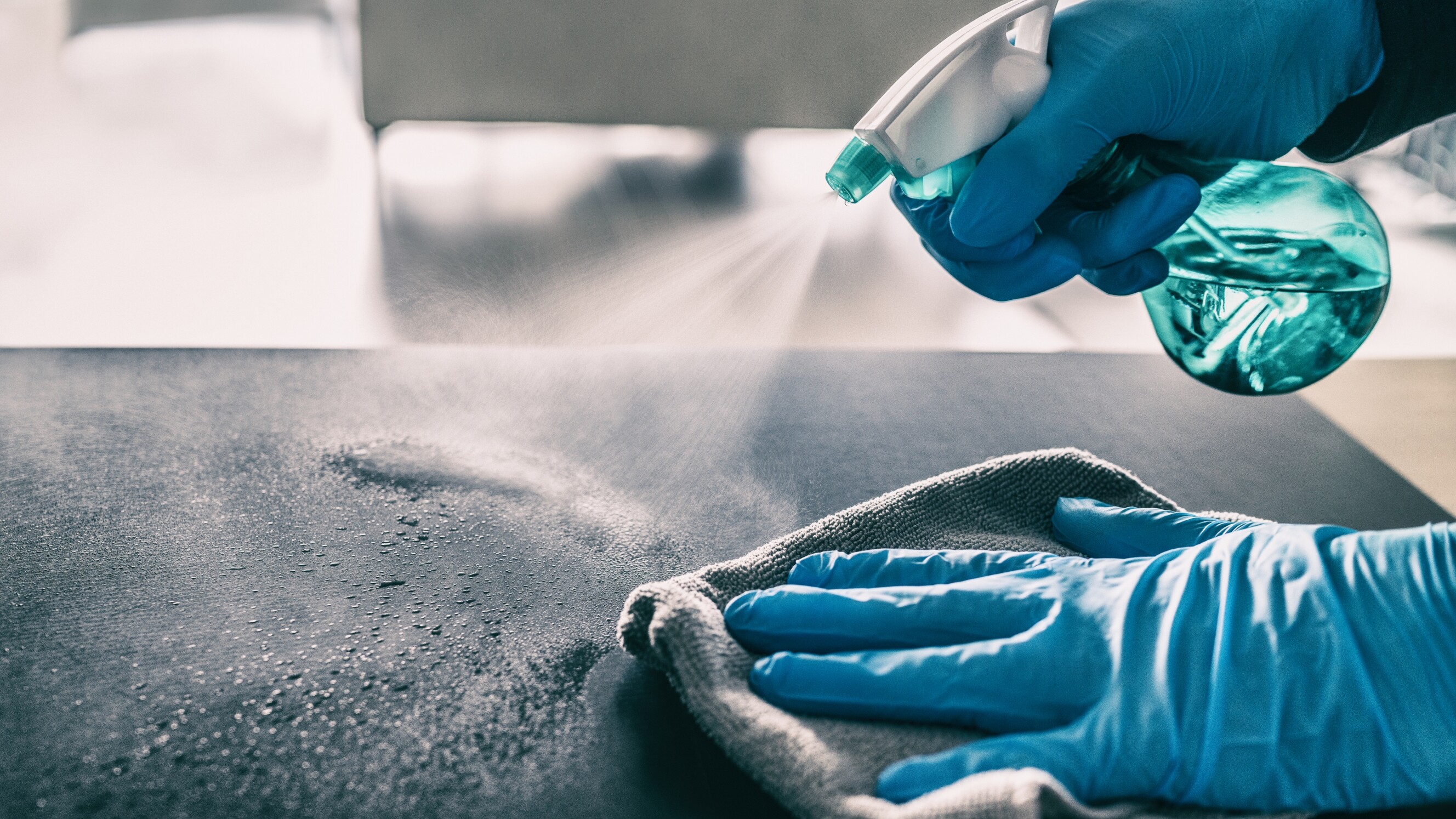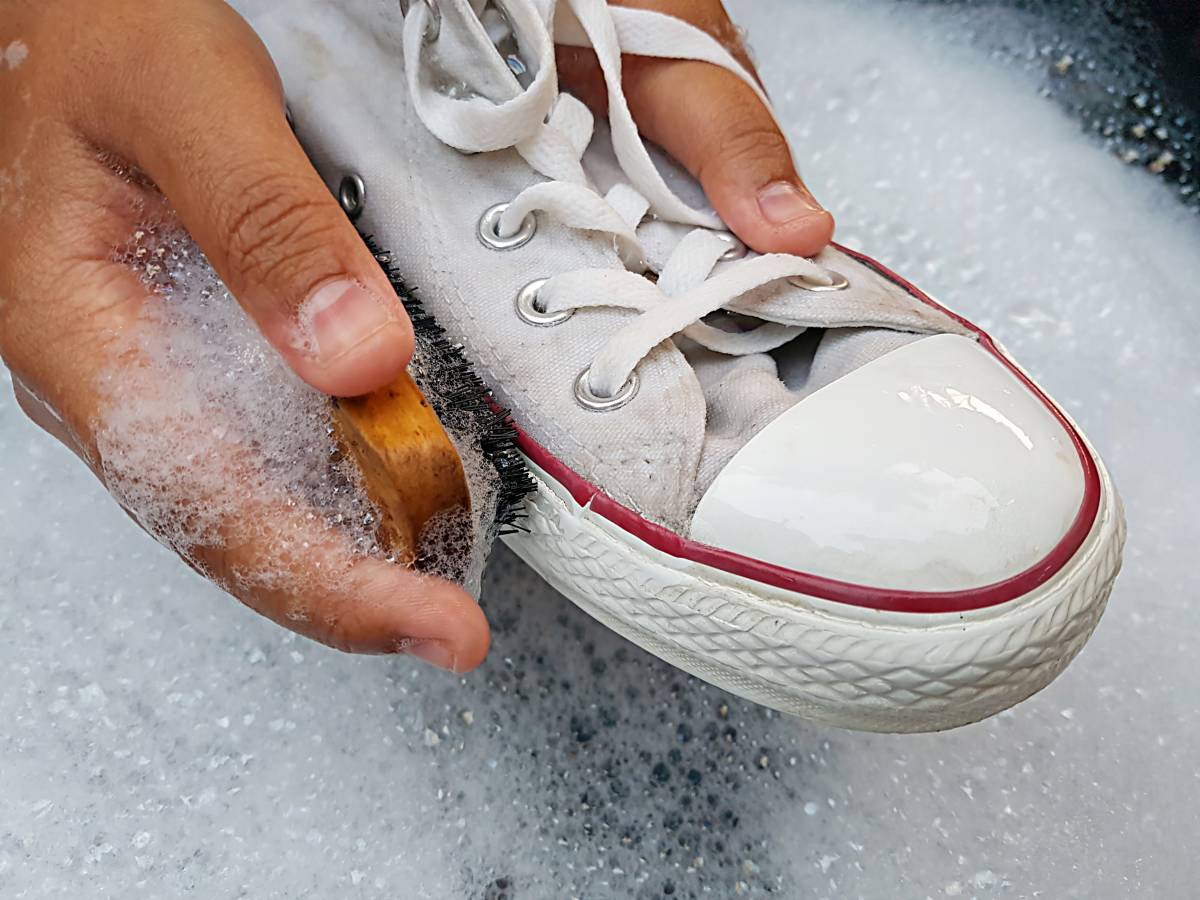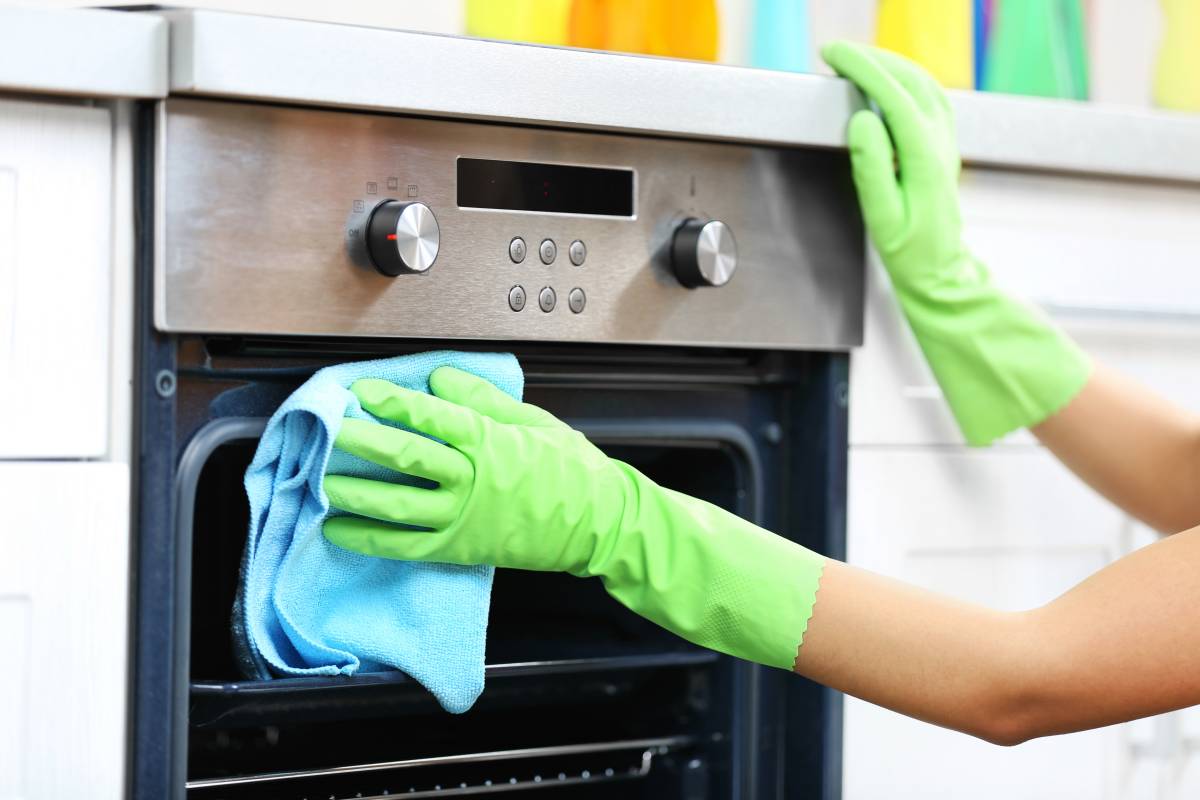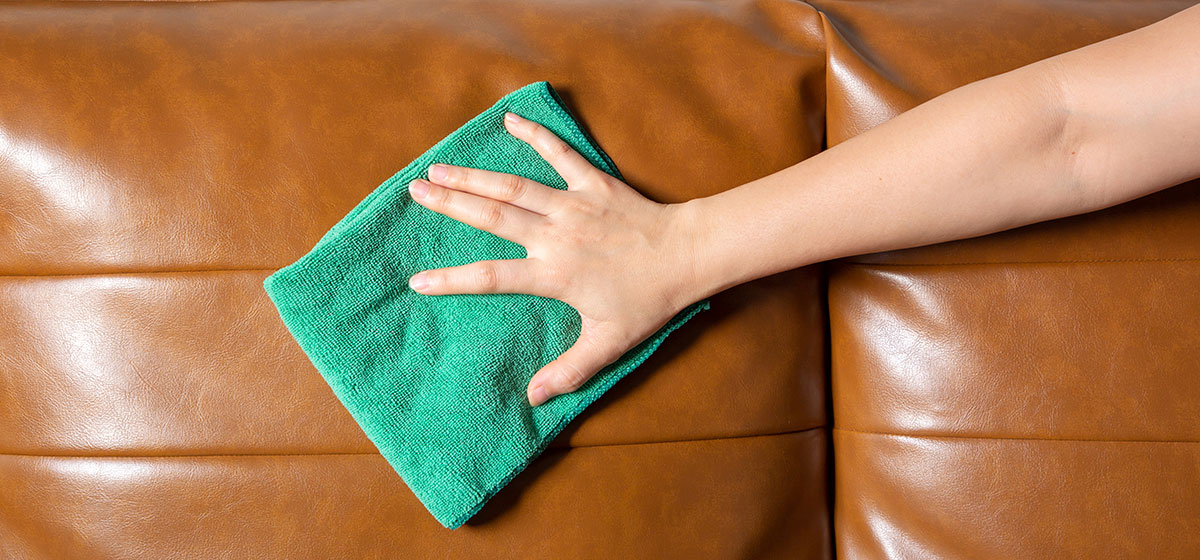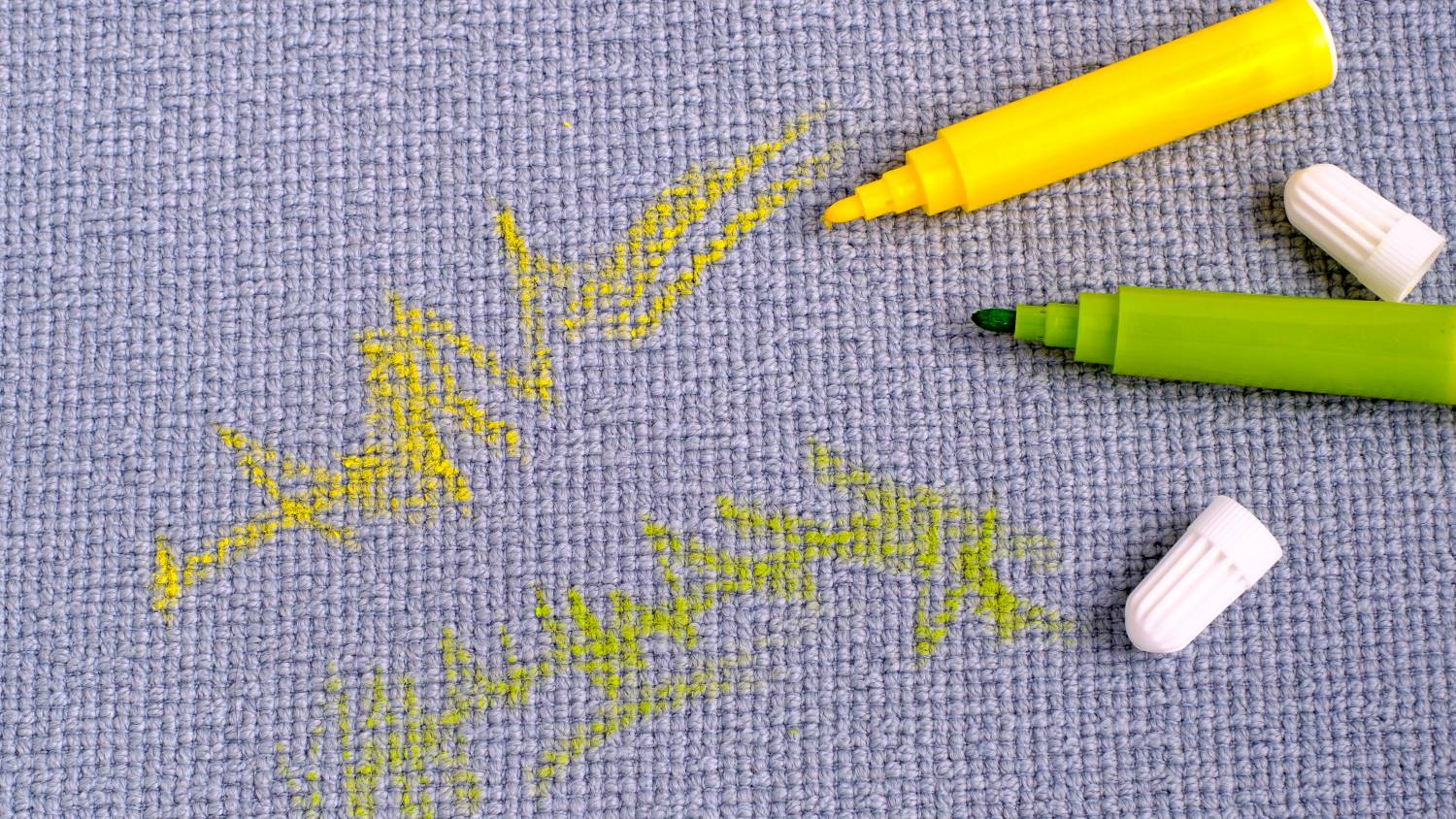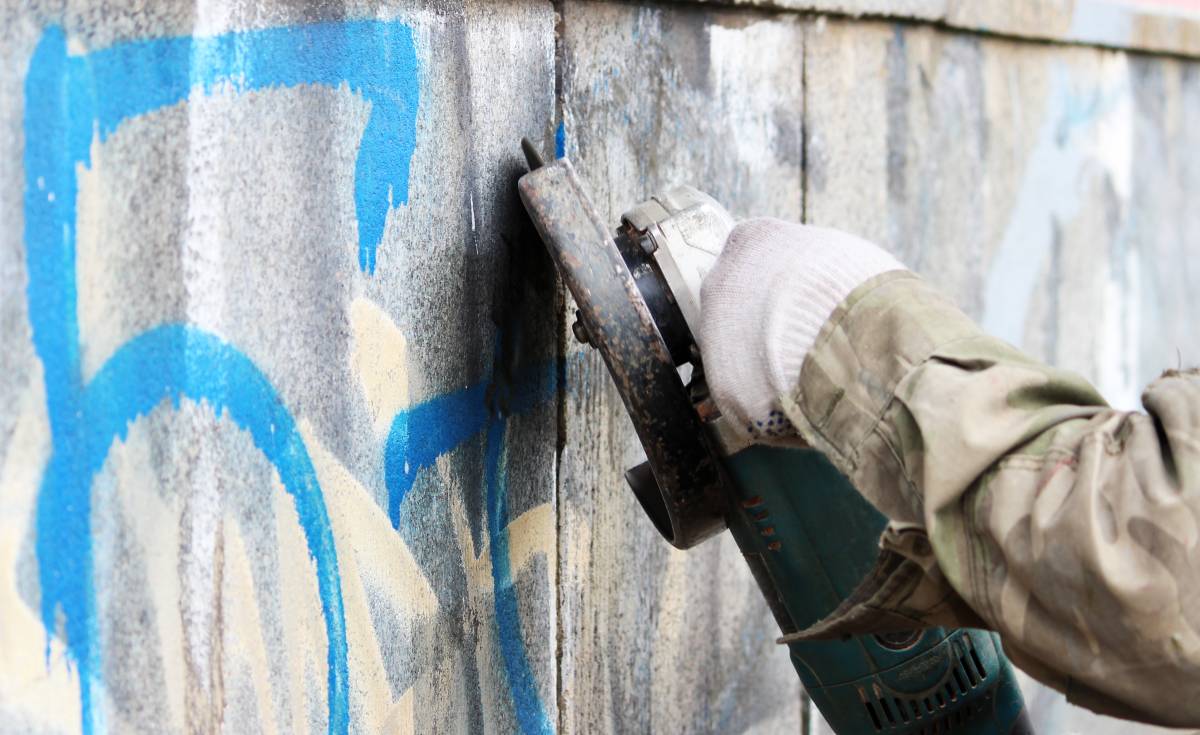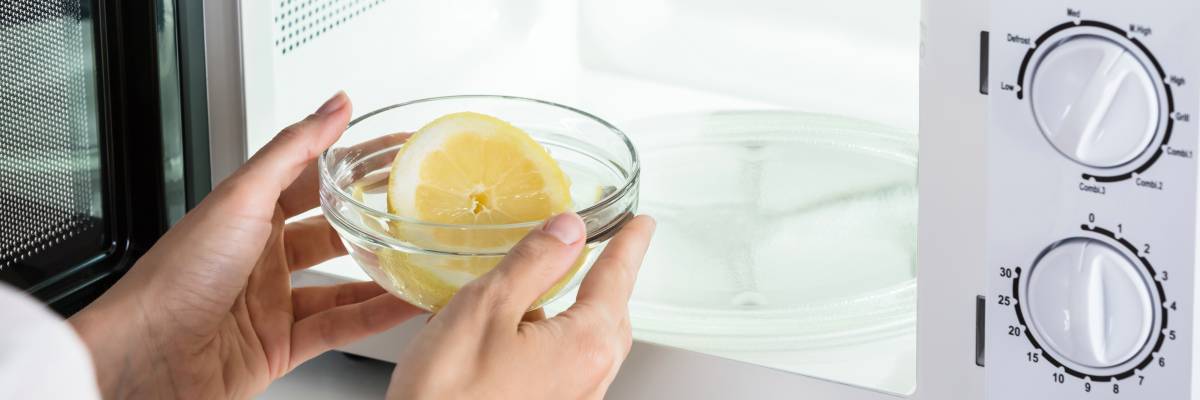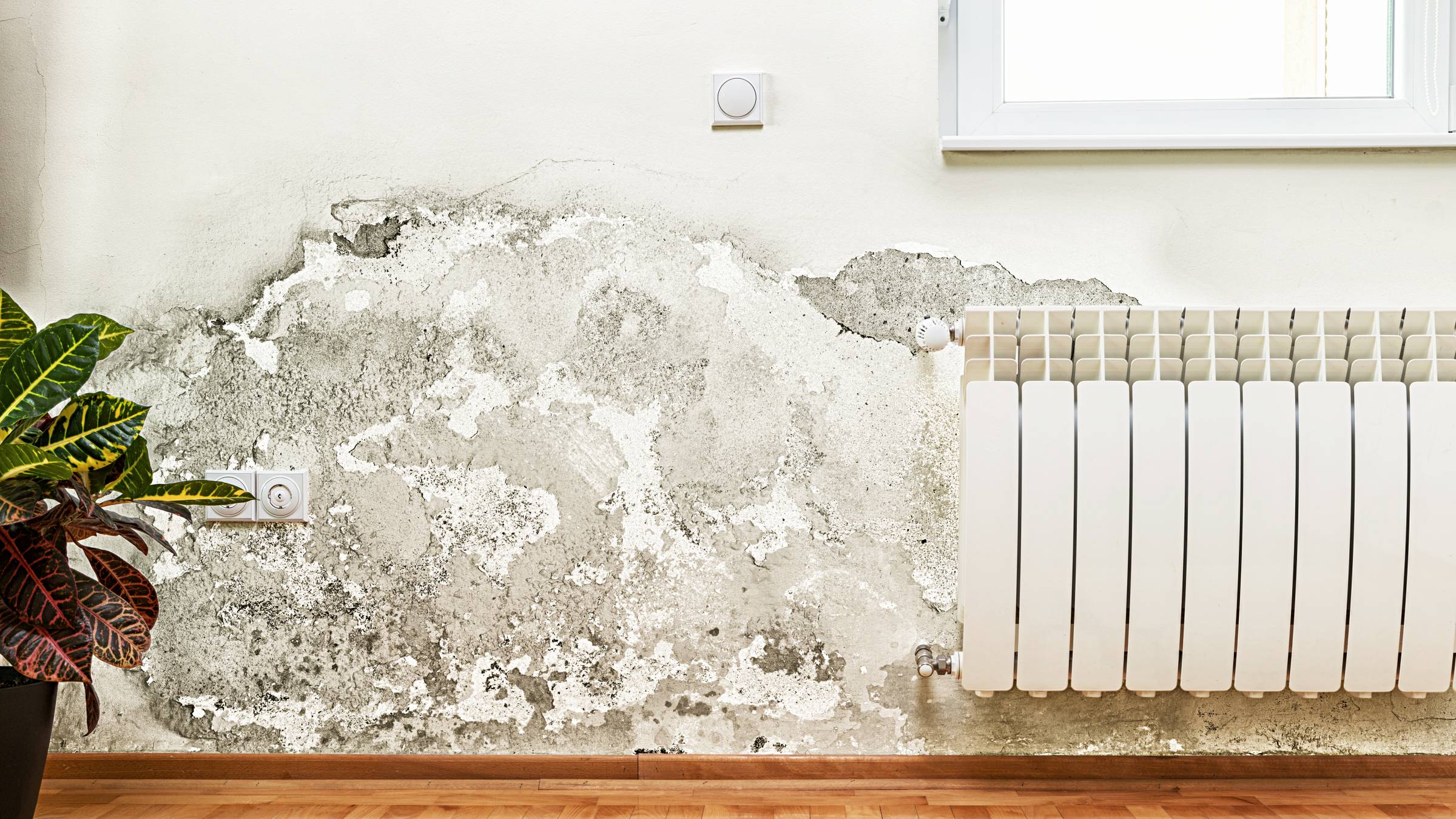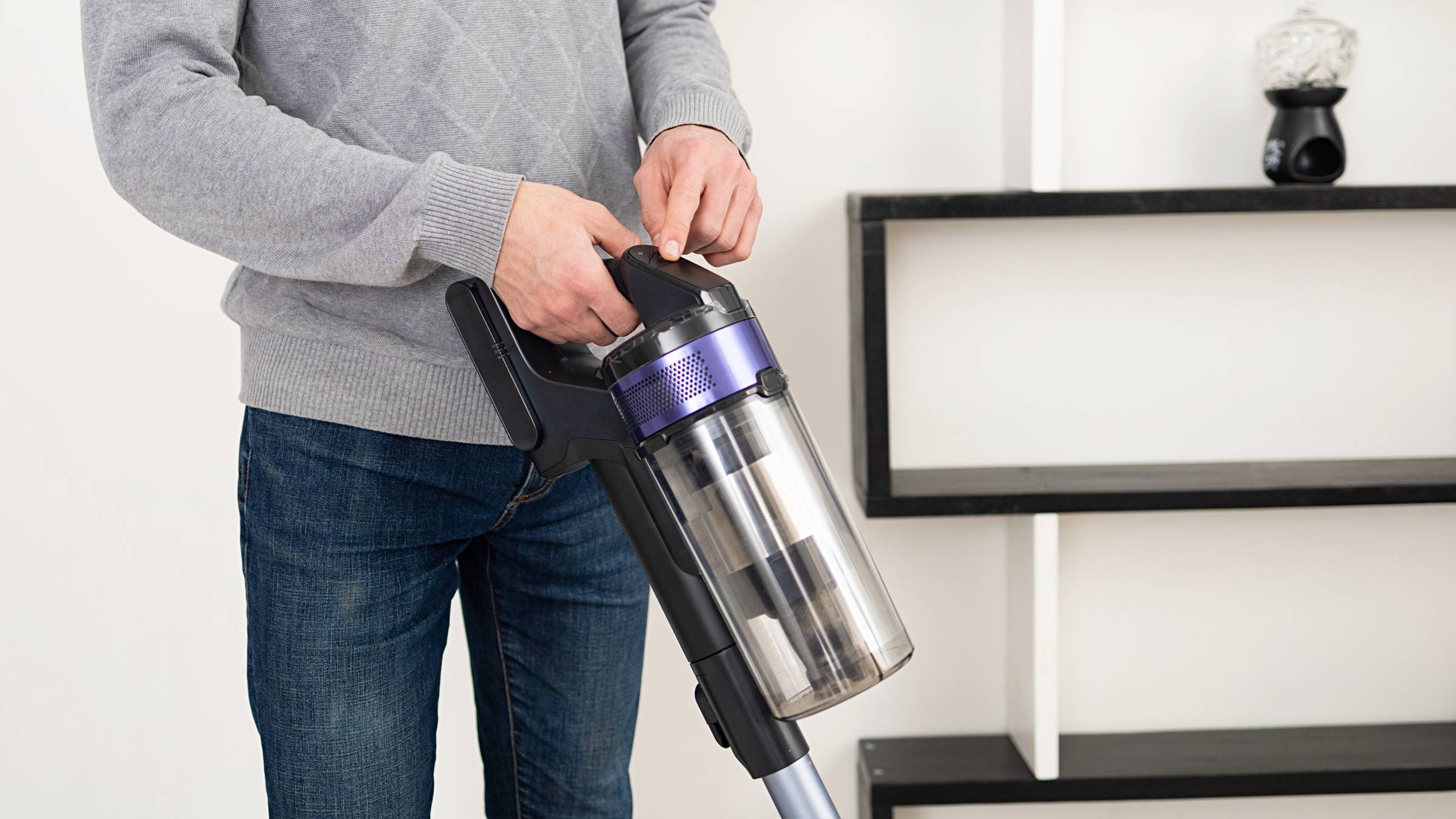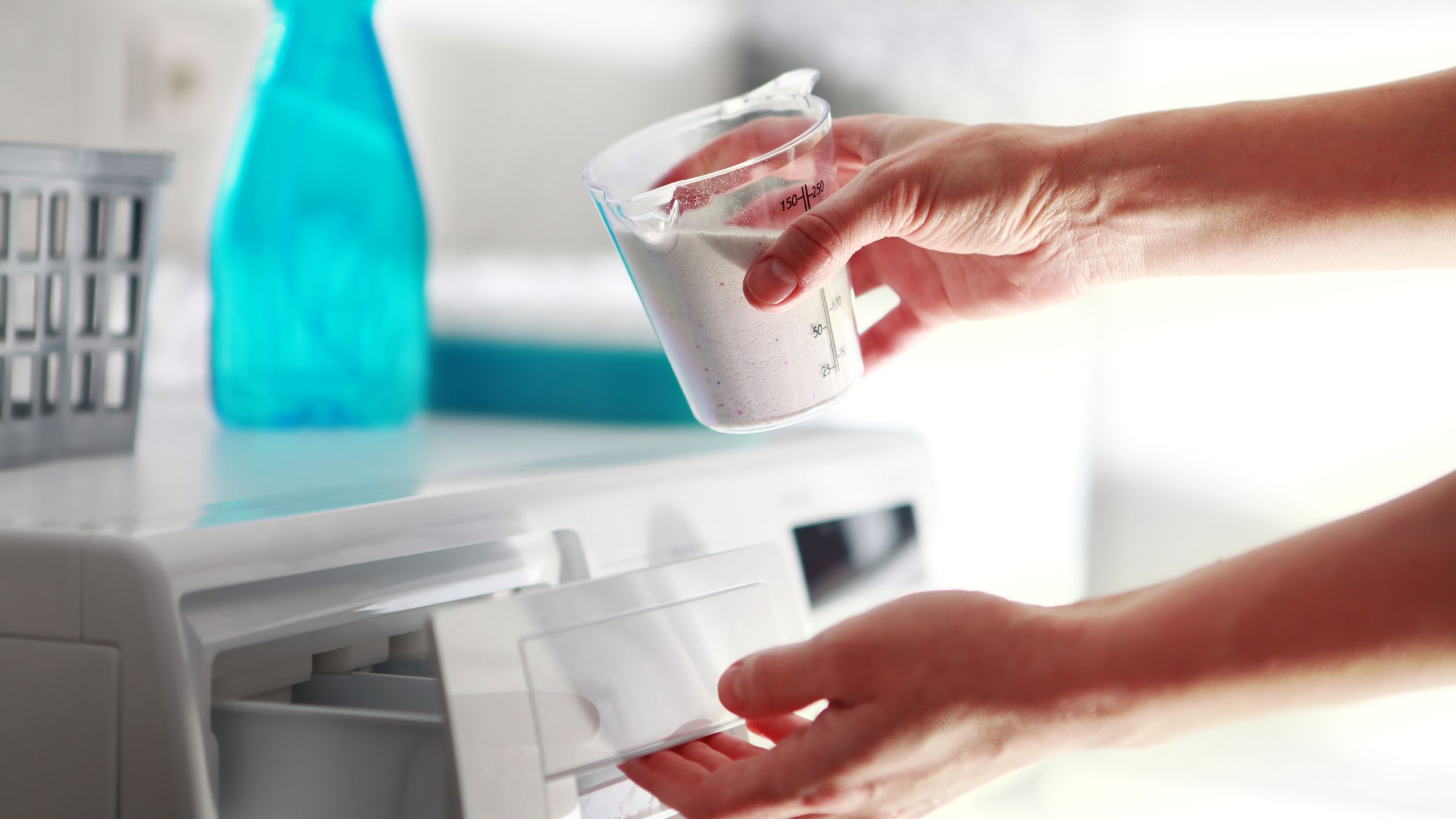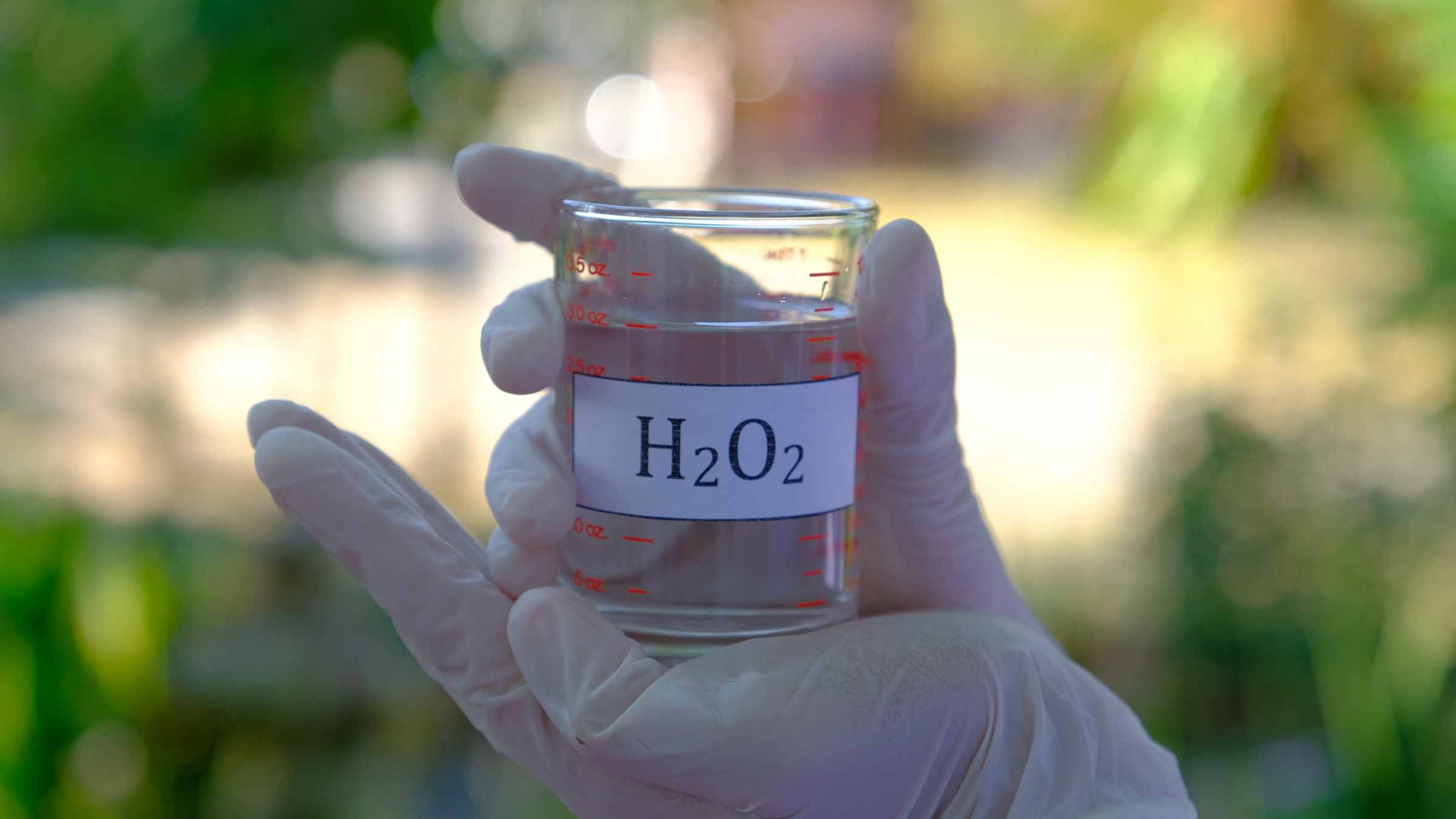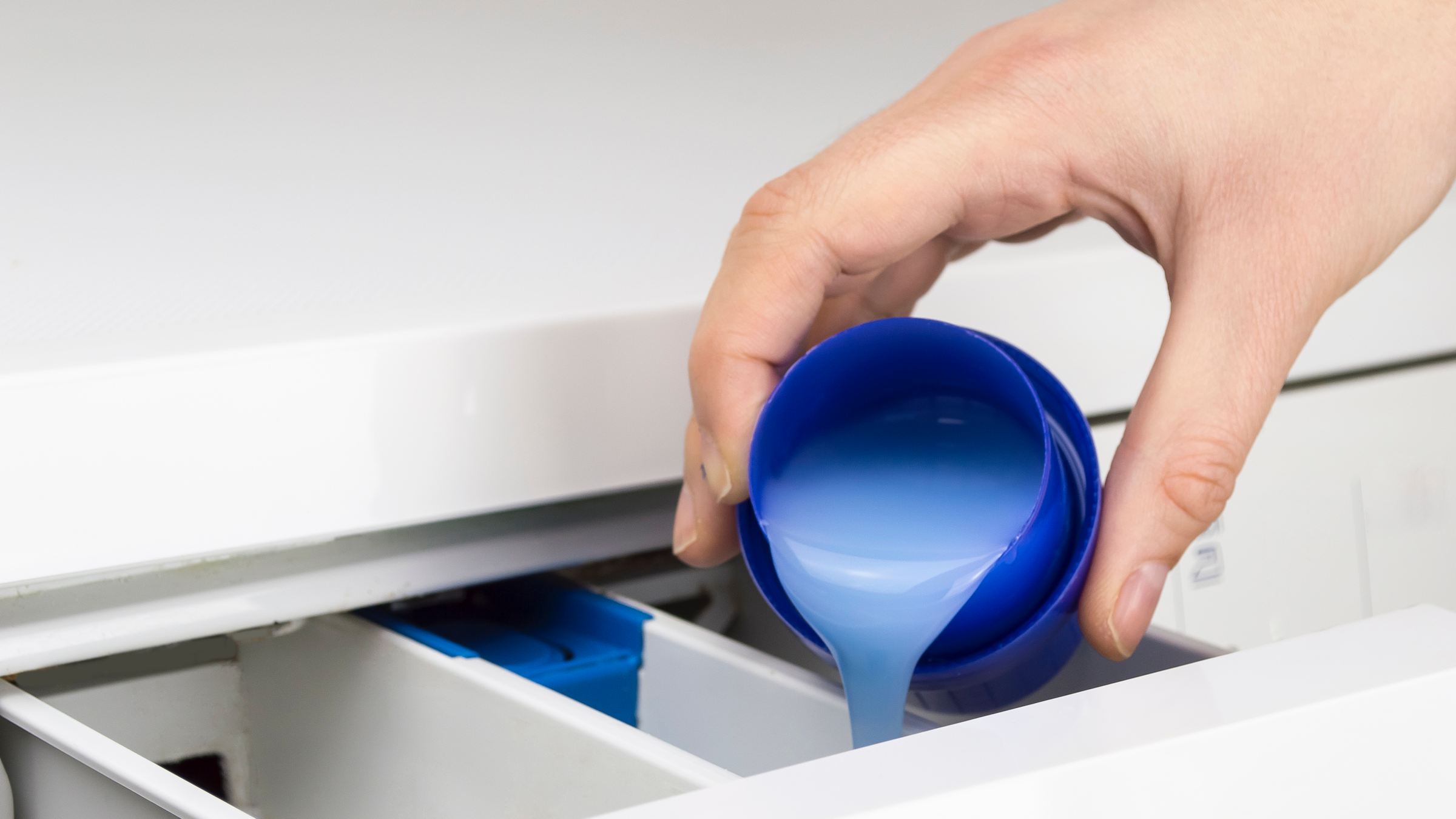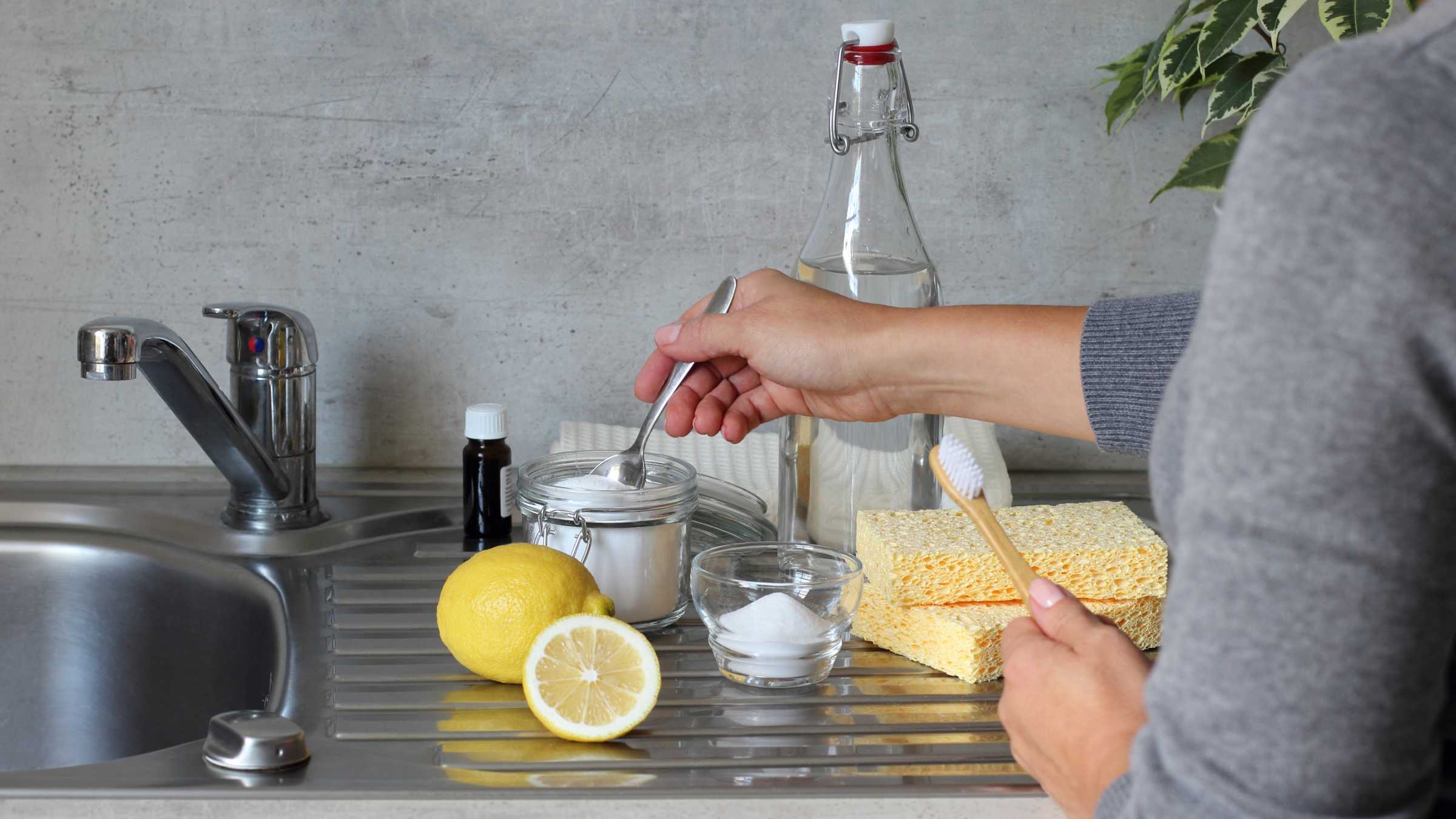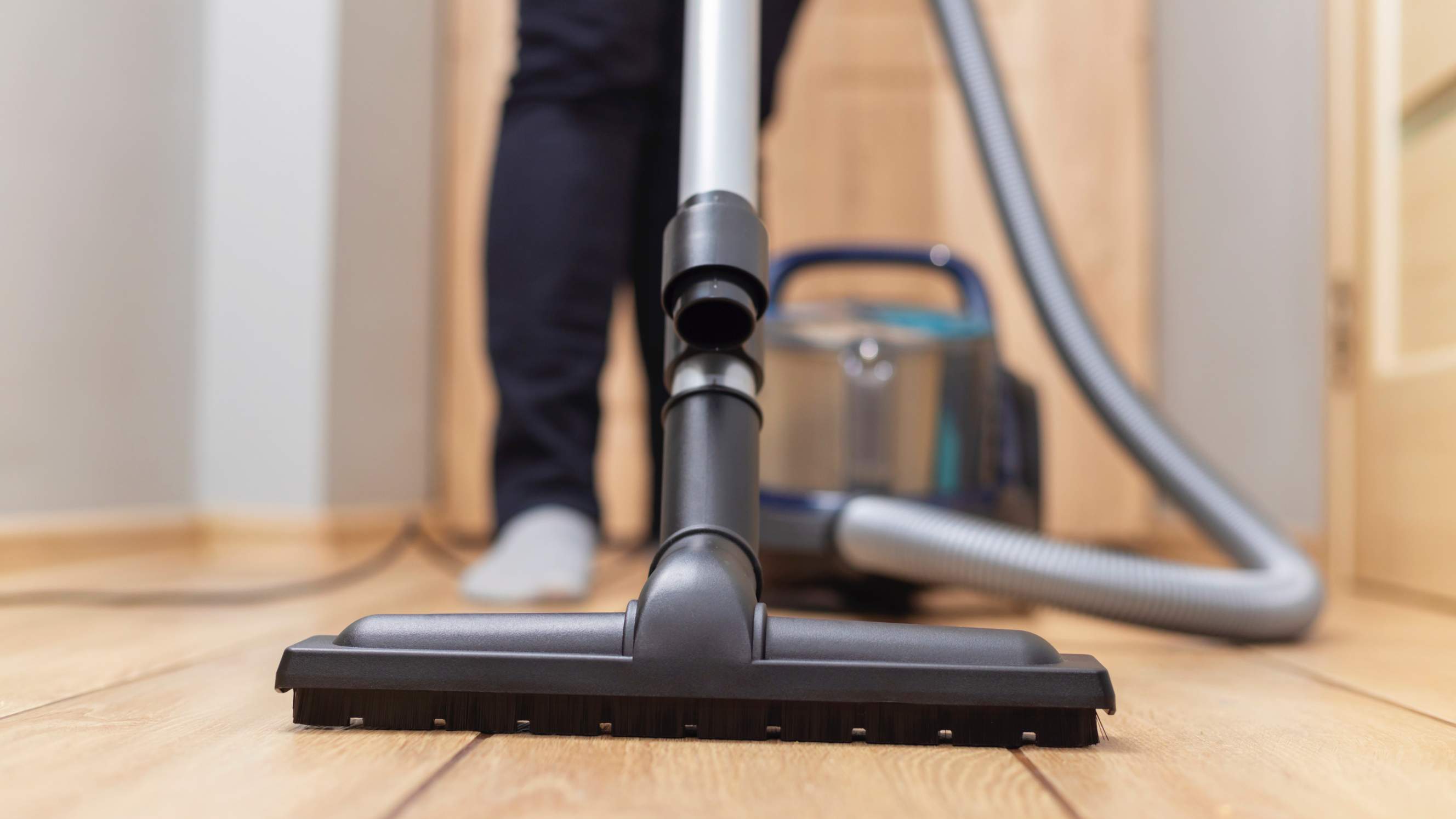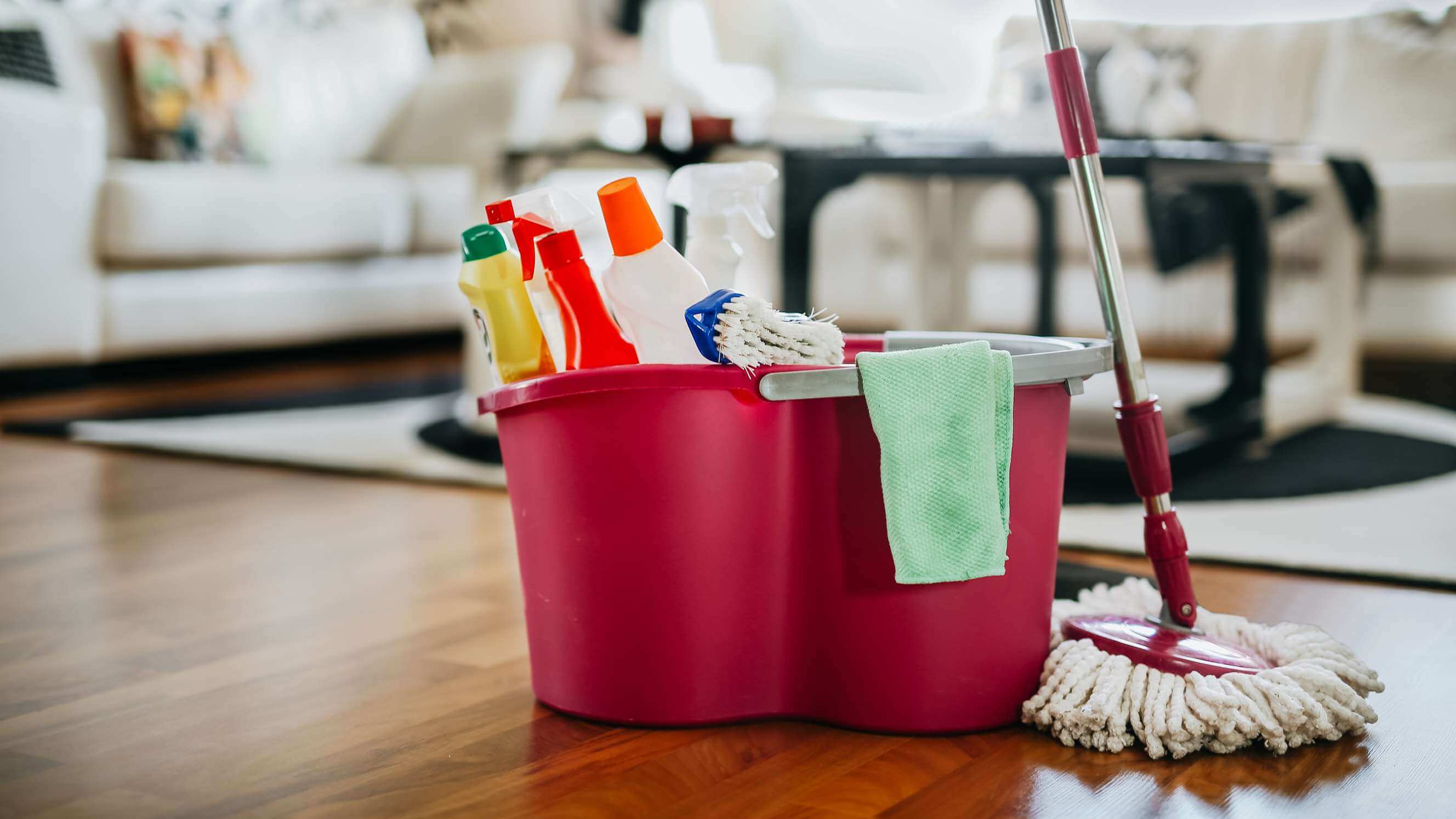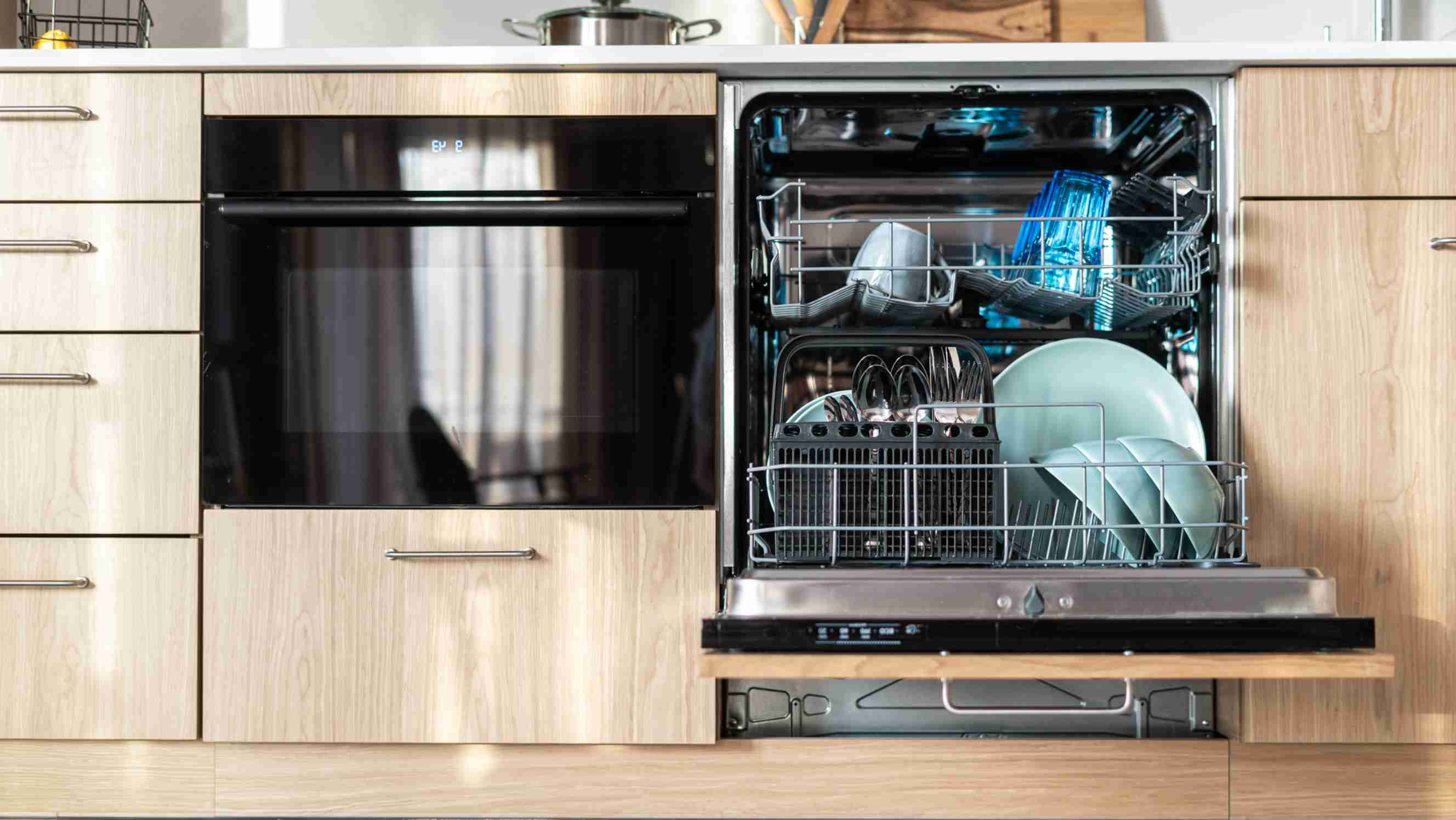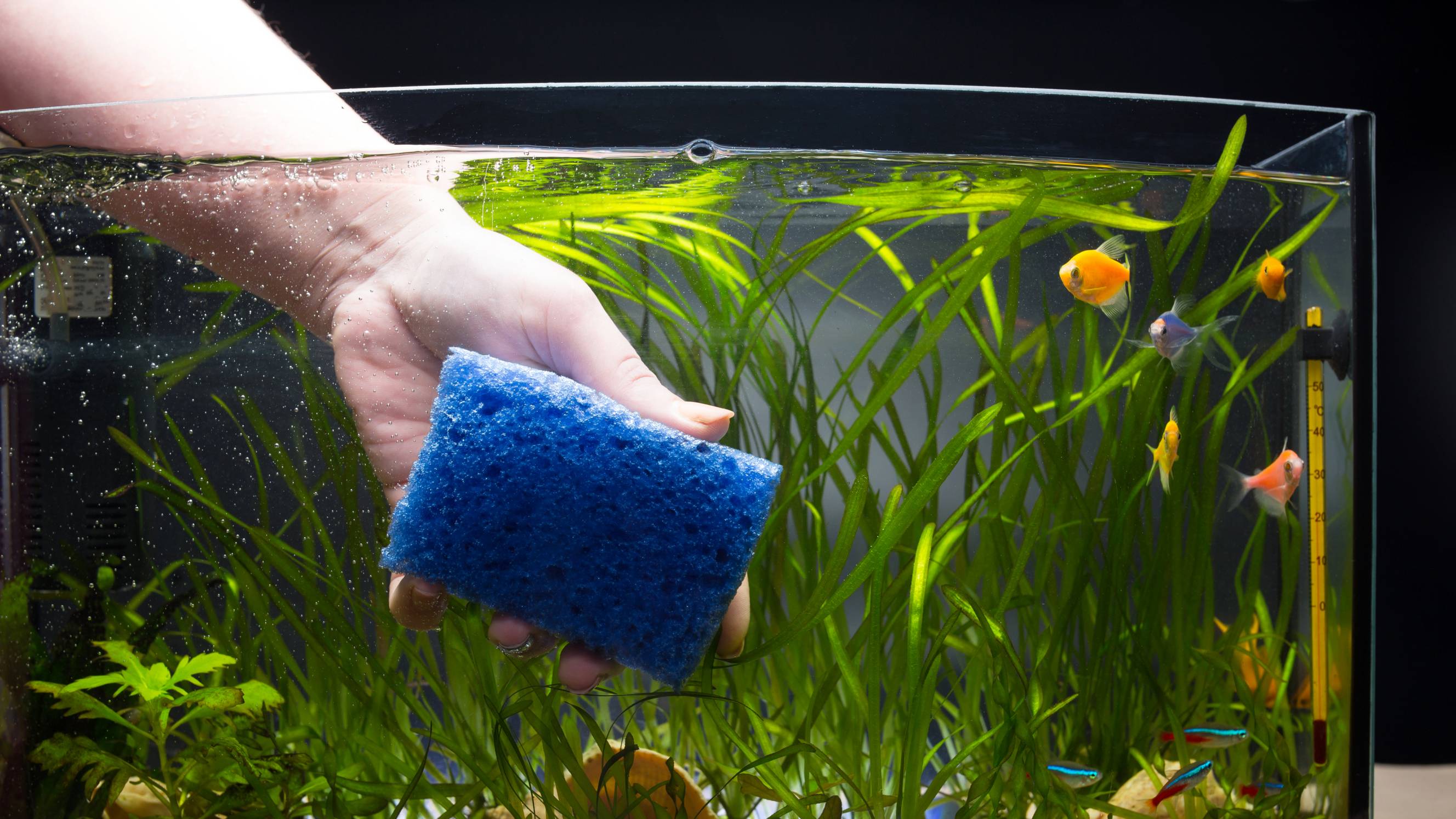
- Home/
- Guides/
- Fish Tank Cleaning/
- How to Clean a Fish Tank
How to clean your fish tank like a pro
Practical steps to achieving a clean fish tank at home
Published on
An aquarium is a great way to liven up any room with its vibrant marine life and soothing ambiance. In contrast, the opposite may be true for a dirty fish tank. Thus, learning how to clean a fish tank is crucial for maintaining a healthy home.
To help individuals who may not be familiar with the process, this article demonstrates how to clean a fish tank for beginners.
Preparing to clean your fish tank (tools, safety measures, etc.)
Before proceeding with freshwater fish tank maintenance, have the following items within arm’s reach to ensure a smooth process:
Algae scraper or pad
Bucket
Cloth
Glass or acrylic cleaner
Gravel vacuum
Scissors
Small cleaning brush
Water conditioner
Water quality test kit
How to clean your fish tank well
Read this step-by-step guide if you want to know how to clean a fish tank without removing the fish inside:
Step 1: Check the water quality
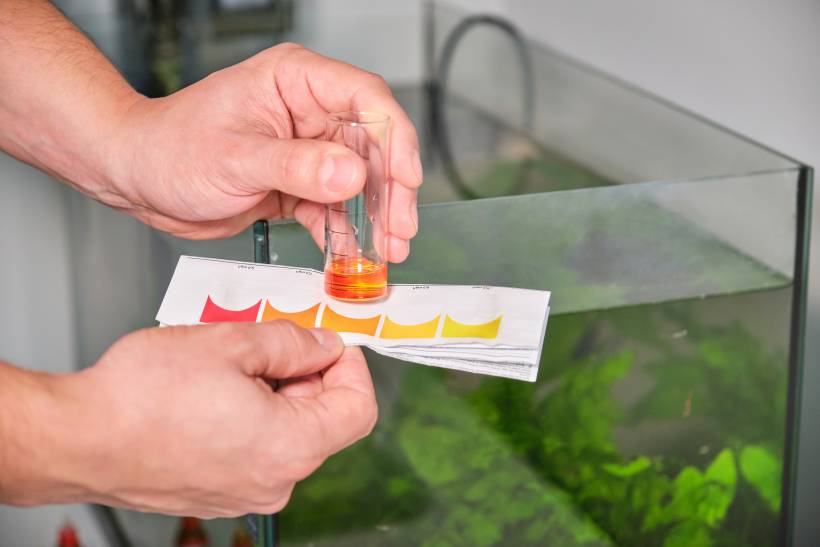
A water quality test kit can help you determine the water’s ammonia, nitrate, and nitrite levels. A 00 ppm measurement for these compounds indicates that your fish tank’s water is safe and the ecosystem it houses can thrive.
There’s no need to empty the fish tank if the ammonia, nitrate, and nitrite levels are dangerously high; you only have to remove enough aquarium water to reach the ideal ppm.
Step 2: Scrub off the algae and trim the vegetation
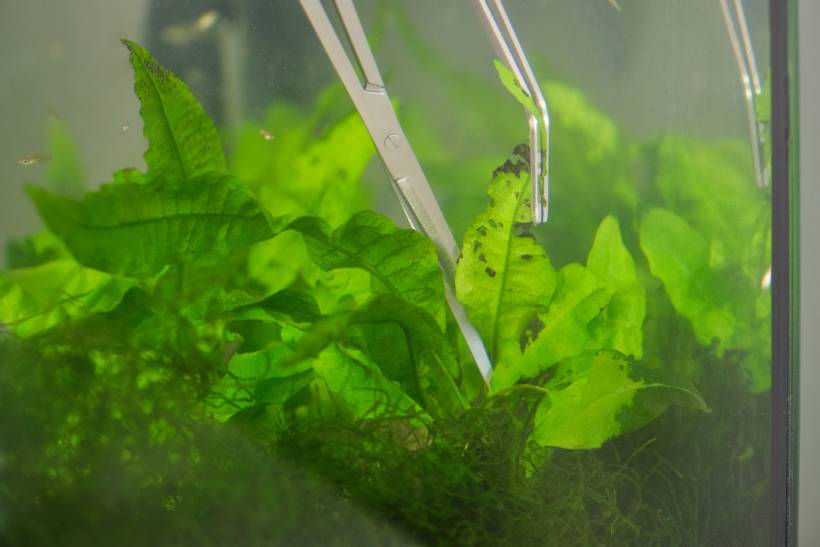
Similar to the case of home gardens, the growth of an aquarium’s algae and plant life needs to be controlled to maintain a healthy and pleasant-looking environment. To do this, use an algae pad or scraper to scrub it off the tank’s inner walls. Make sure you’re using one that won’t scratch your tank, whether it’s made of glass or acrylic. You can also use a small brush to scrape algae off various surfaces, such as pebbles, ornaments, and other aquarium furniture.
Afterward, use rust-proof scissors to manicure your aquarium’s ‘lawn.’ Rip off and remove dead plants, trim the overgrowth and wilting leaves, and ensure the presence of flora in the tank isn’t overwhelming.
Step 3: Use a gravel vacuum to siphon off water, dirt, and waste
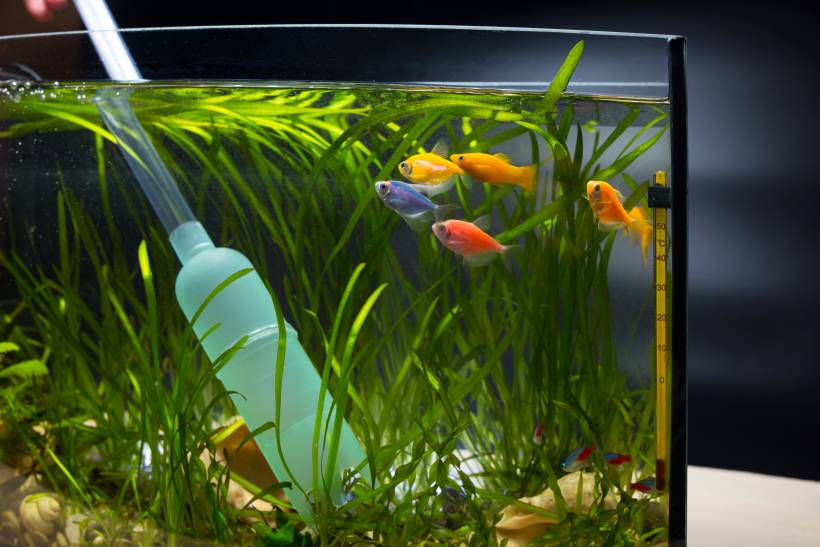
Before moving on to the next step in fish tank cleaning, unplug any attached equipment first. Such equipment may include water filters, heaters, and lights.
Use a gravel vacuum to remove water from the fish tank and reach the recommended ammonia, nitrate, and nitrite levels. Transfer the water to a bucket, which you’ll need in the next step. You can also use the vacuum to siphon off dirt, fish waste, uneaten food, and even dead fish floating or collecting on the aquarium’s substrate.
You don’t have to remove the fish from the tank during this process, but be careful using the vacuum so it won’t accidentally suck them.
Step 4: Clean the filter
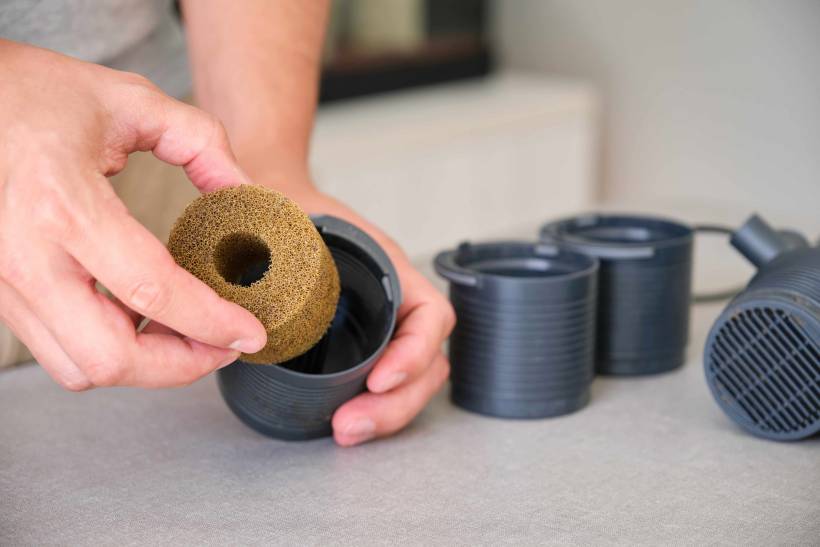
Cleaning a fish tank thoroughly involves making sure its filter is also washed. However, it’s not necessary to bring the filter back to its original condition; doing so may get rid of the beneficial bacteria that help with filtration. All you have to do is disassemble the equipment, wring out its sponge in the water-filled bucket, gently rinse the filter media in the same container, and then brush the other filter parts. After these procedures, you may proceed with reassembly.
Step 5: Fill the tank with clean water
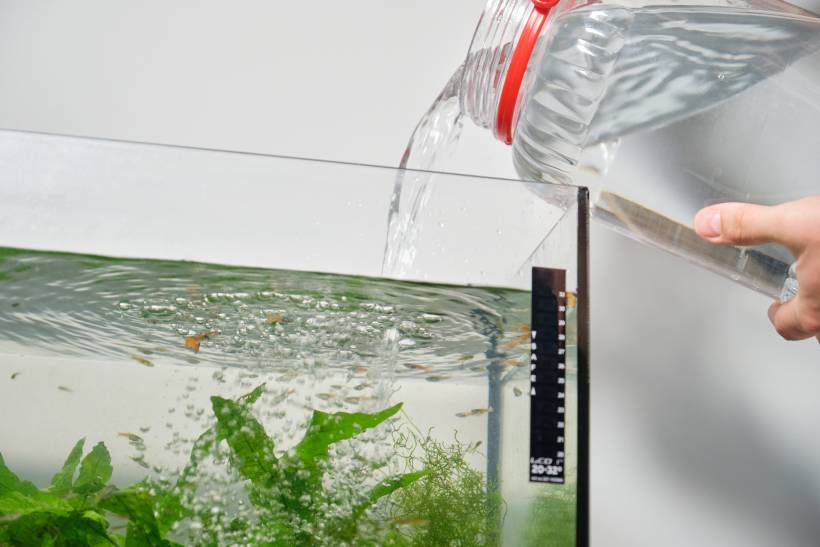
When refilling the fish tank with tap water, ensure it has the same temperature as the water already in the tank. You don’t have to use a thermometer for this since it’s easy to gauge any difference in water temperature using just your hands.
Carefully transfer tap water to the tank to avoid splashes, and then add a water conditioner. Afterward, it’s safe to turn on all the equipment in the aquarium.
Step 6: Clean the tank’s exterior
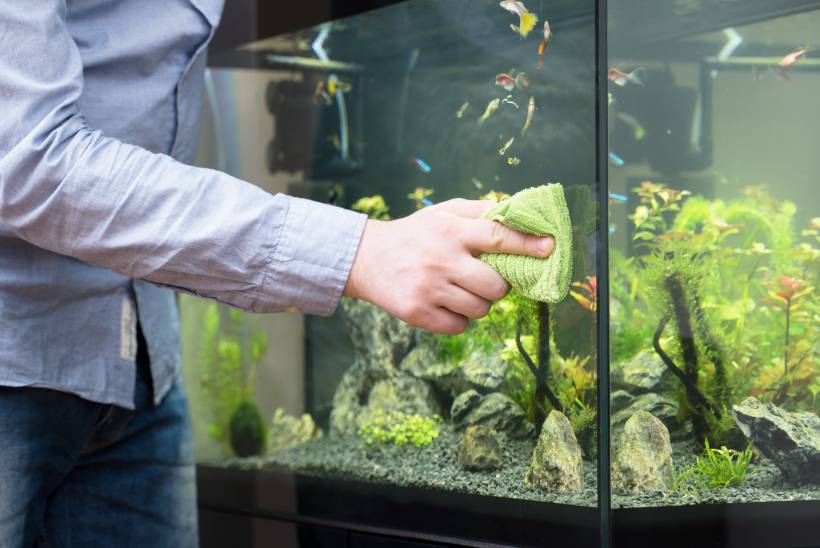
The best way to clean a fish tank is by starting with what’s inside it, and now that you’re done with that part, you may begin dealing with its exterior surface. Apply a glass or acrylic cleaning solution to a cloth and use it to wipe away dirt and smudges from all sides of the fish tank. You’ll know the process is complete once every surface is sparkling, and your happy and healthy fish can enjoy their living environment again.
How to keep your fish tank clean
In addition to knowing how to keep a fish tank clean, it’s beneficial for you to learn how to prolong its healthy status in different ways, including through the following approaches:
Keep water dwellers that feed on algae, such as catfish or snails, in your fish tank. When choosing which one to get, consider the fact that some species will only consume certain types of algae.
Make sure not to overfeed your fish because any leftovers translate to waste that will end up as litter on the aquarium’s substrate.
Because there’s a range of water filters available on the market, you should ensure you’re choosing the right kind for your fish tank. Some offer biological, mechanical, or chemical filtration, while others have all these capabilities.
Moreover, determining how often to clean a fish tank is one of the ways to responsibly take care of your pet fishes. Generally, a cleaning job every few weeks up to once a month is fine.
Simplify fish tank cleaning with Airtasker
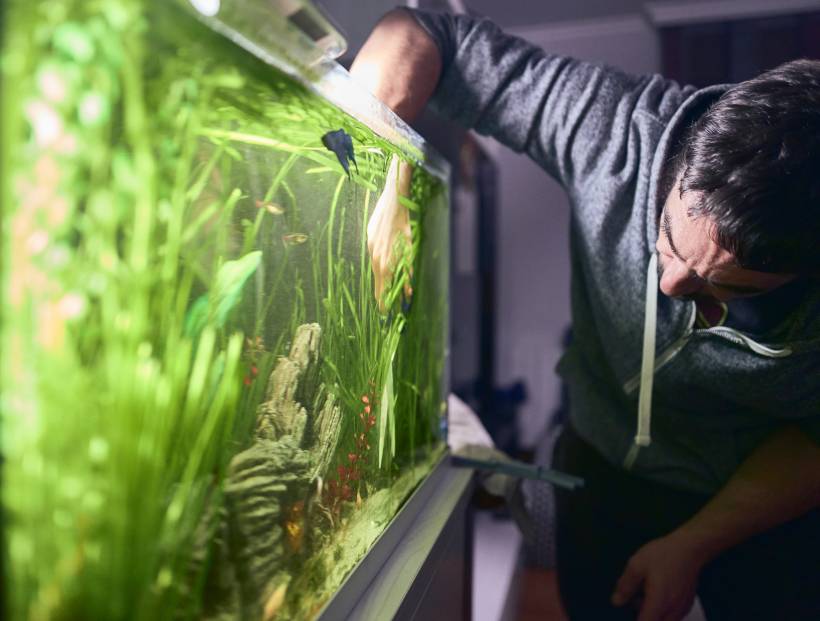
House cleaning entails more than just scrubbing down dirty surfaces; it also calls for moving bulky furniture and cleaning other household items and decor, including fish tanks. If you are in need of a professional aquarium cleaner, you can locate plenty of qualified individuals on Airtasker who can take on any type of fish tank.
To begin, just make a post with your location, estimated budget, and relevant details about your aquarium. After that, all you have to do is wait for responses to come in and choose the Tasker who seems like they will do the best job.
Alternatively, you can also use the Airtasker website if you need someone reliable to fix your damaged aquarium.
FAQs on fish tank cleaning
You’ll know it’s time to clean your aquarium once your fish start looking weary and in distress due to bad tank water quality. Another sign is if the algae and vegetation in the fish tank begin to dominate the underwater landscape. But probably the most telltale sign is when the water has turned cloudy.
Part of learning how to properly clean a fish tank includes knowing not to use soap or detergent during the process. This practice is discouraged because the chemicals these products contain can affect the well-being of your aquarium’s living creatures.
Bacterial bloom, a phenomenon resulting from excessive fish waste, changes in water quality, or infrequent cleaning, can cause fish tanks’ water to look hazy. Usually, replacing some of the water can make it clear eventually. However, there are cases where you just have to wait it out, like if your aquarium is brand new and it’s still taking its time to reach balance.
Find fish tank cleaners, fast
Find a fish tank cleaner
Related price guides

Average price of move out cleaning
Read more
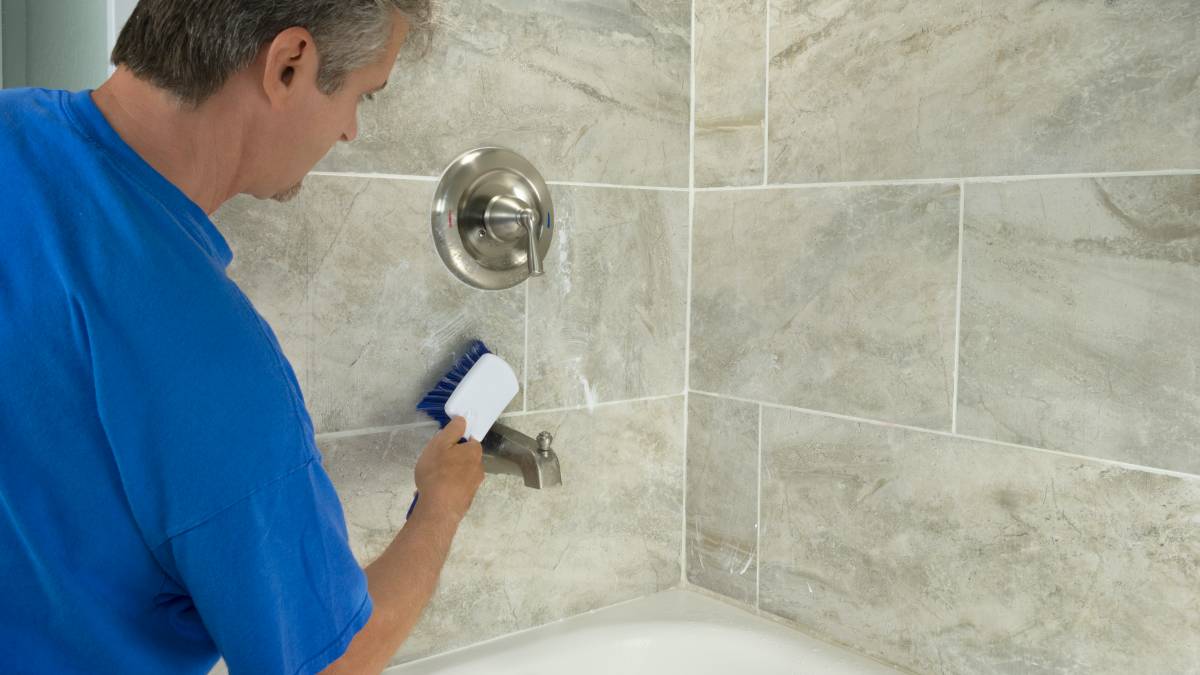
How much does tile cleaning cost?
Read more
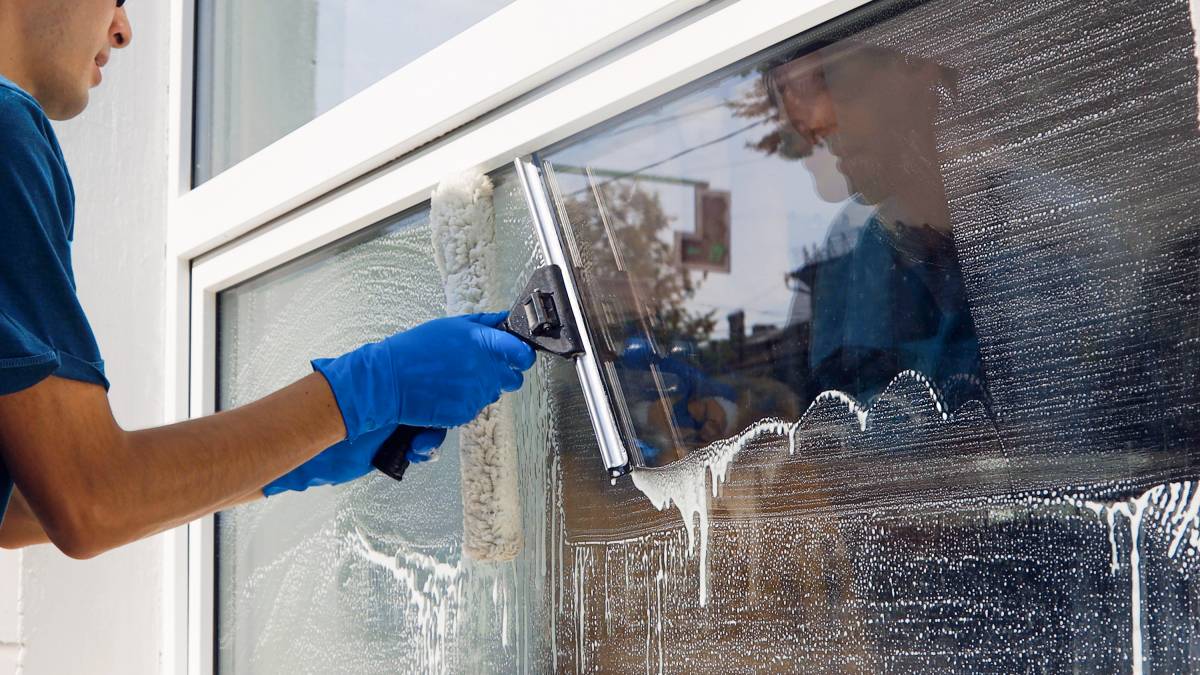
How much does a cleaner cost?
Read more

How much does office cleaning cost?
Read more

How much does attic cleaning cost?
Read more
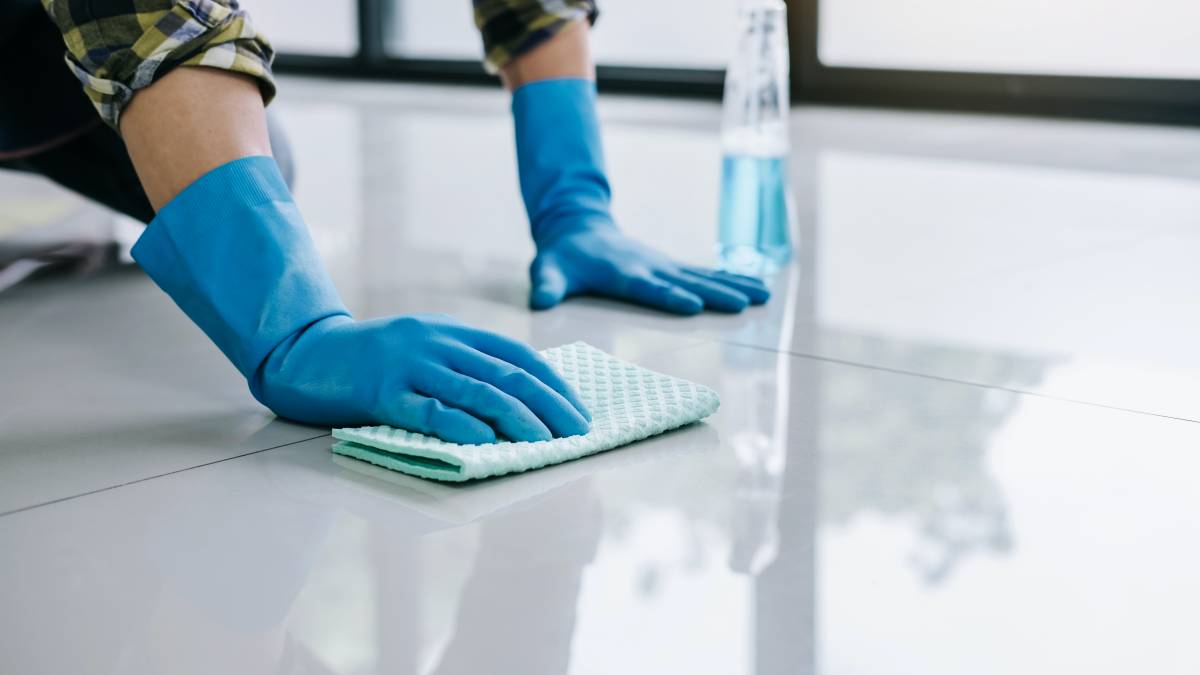
How much does floor cleaning cost?
Read more

How much does brick cleaning cost?
Read more
Related articles
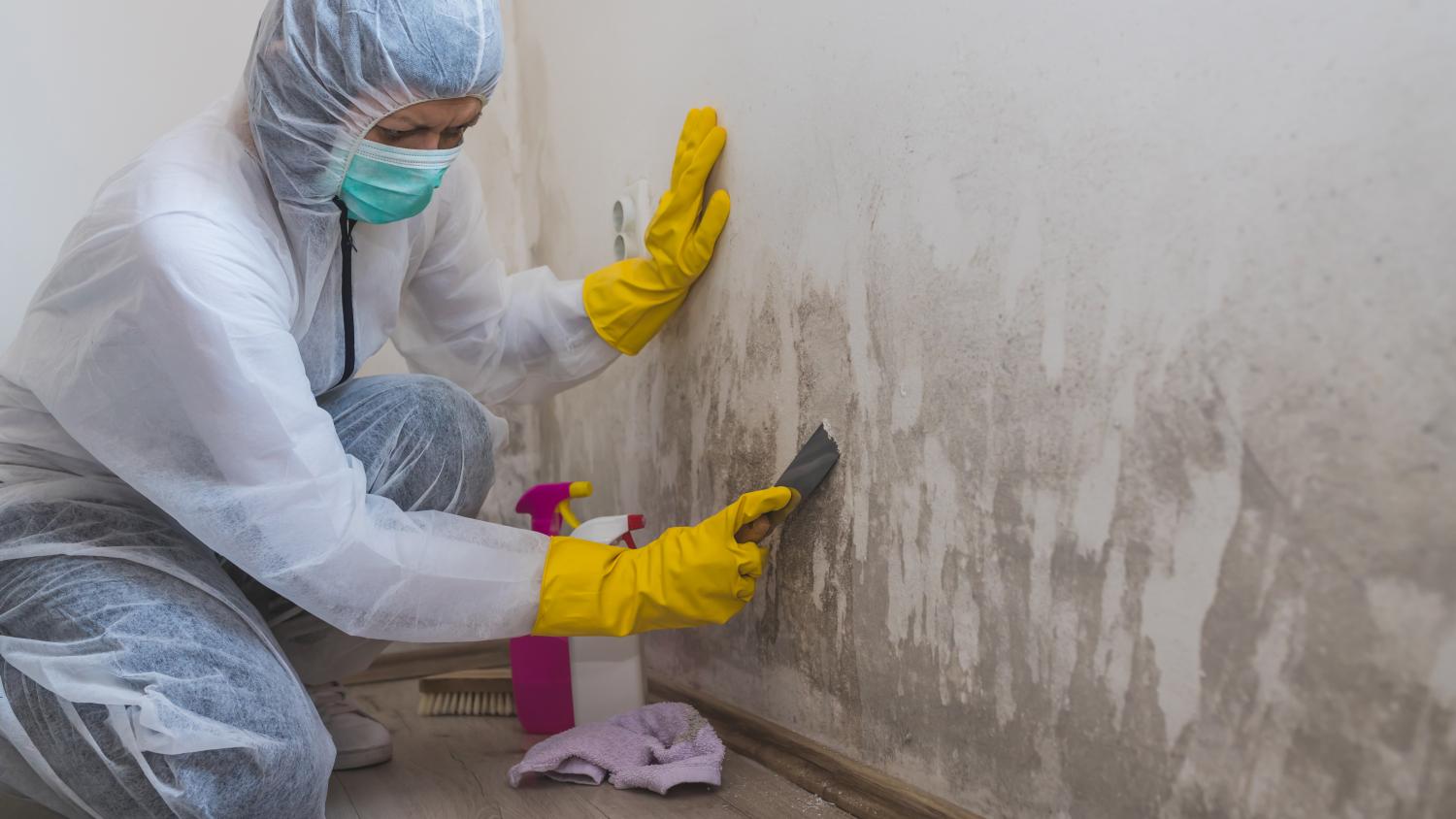
How to get rid of mold at home
Read more

How to price pressure washing jobs
Read more
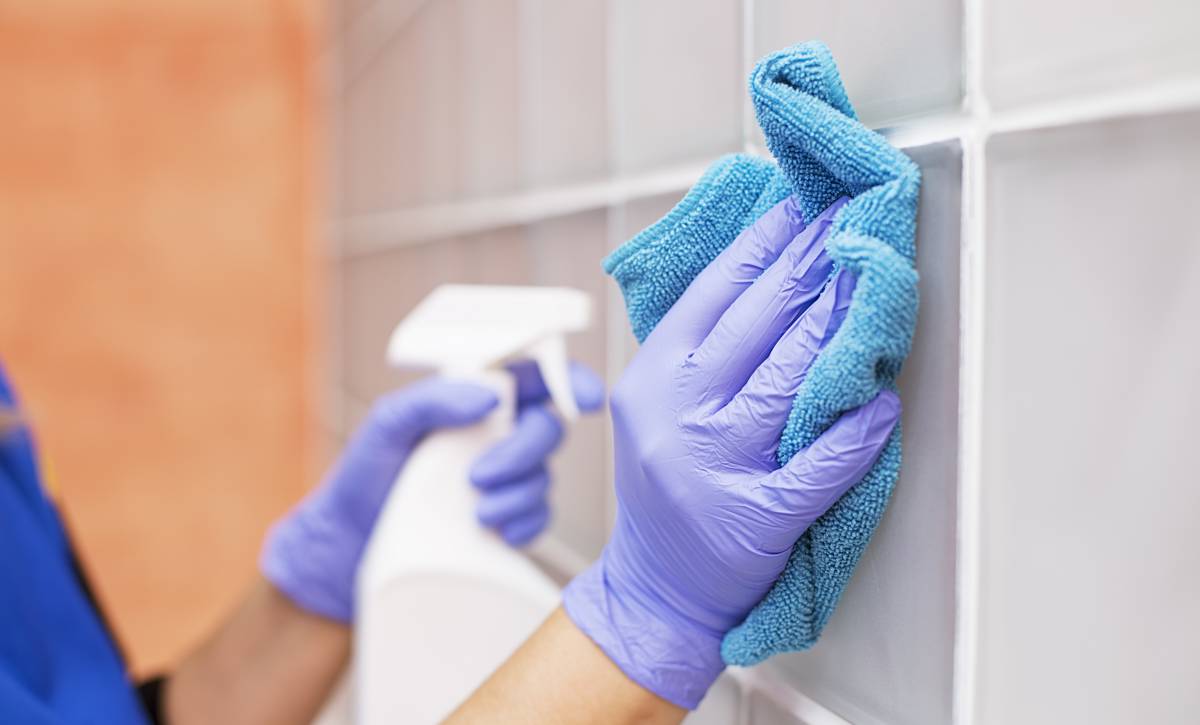
How to get cleaning jobs
Read more

How to get cleaning certification
Read more
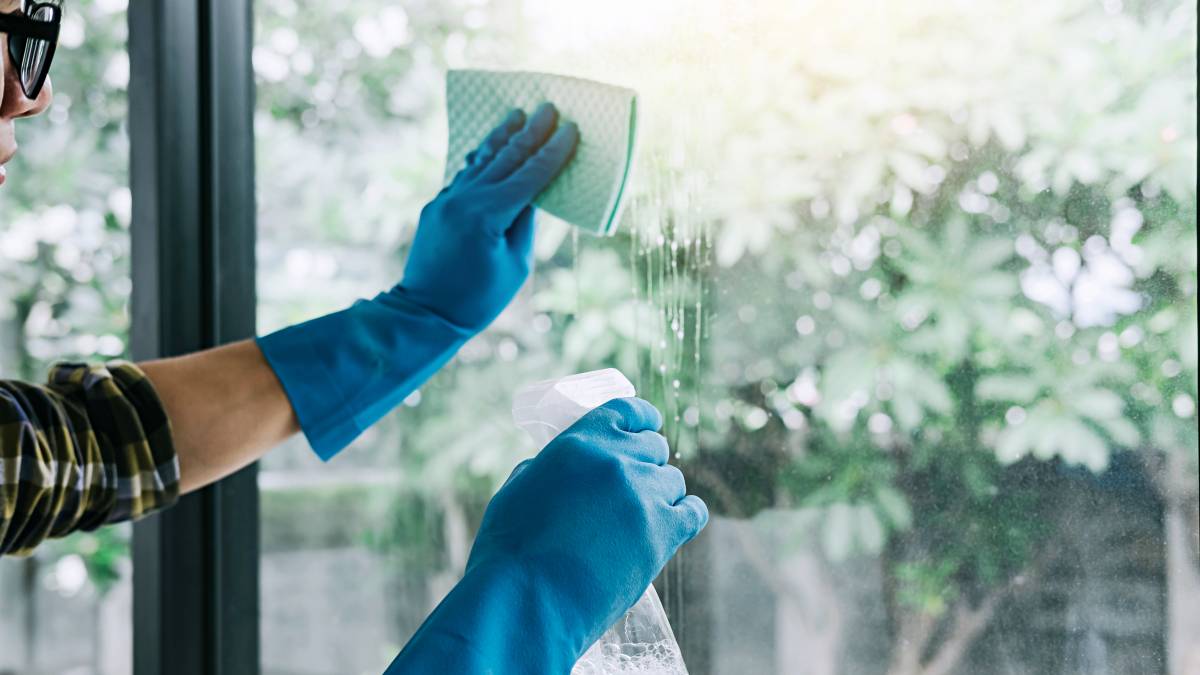
How to price cleaning jobs
Read more
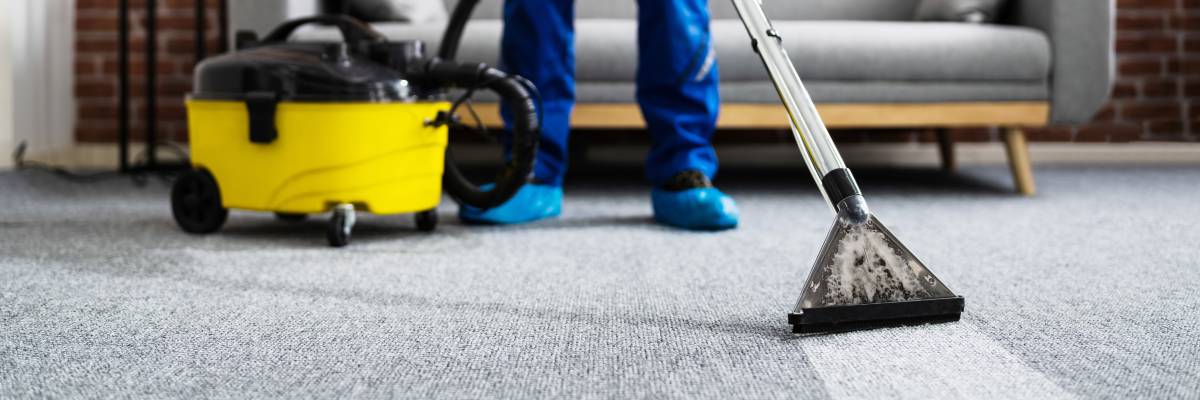
How to become a housekeeper
Read more
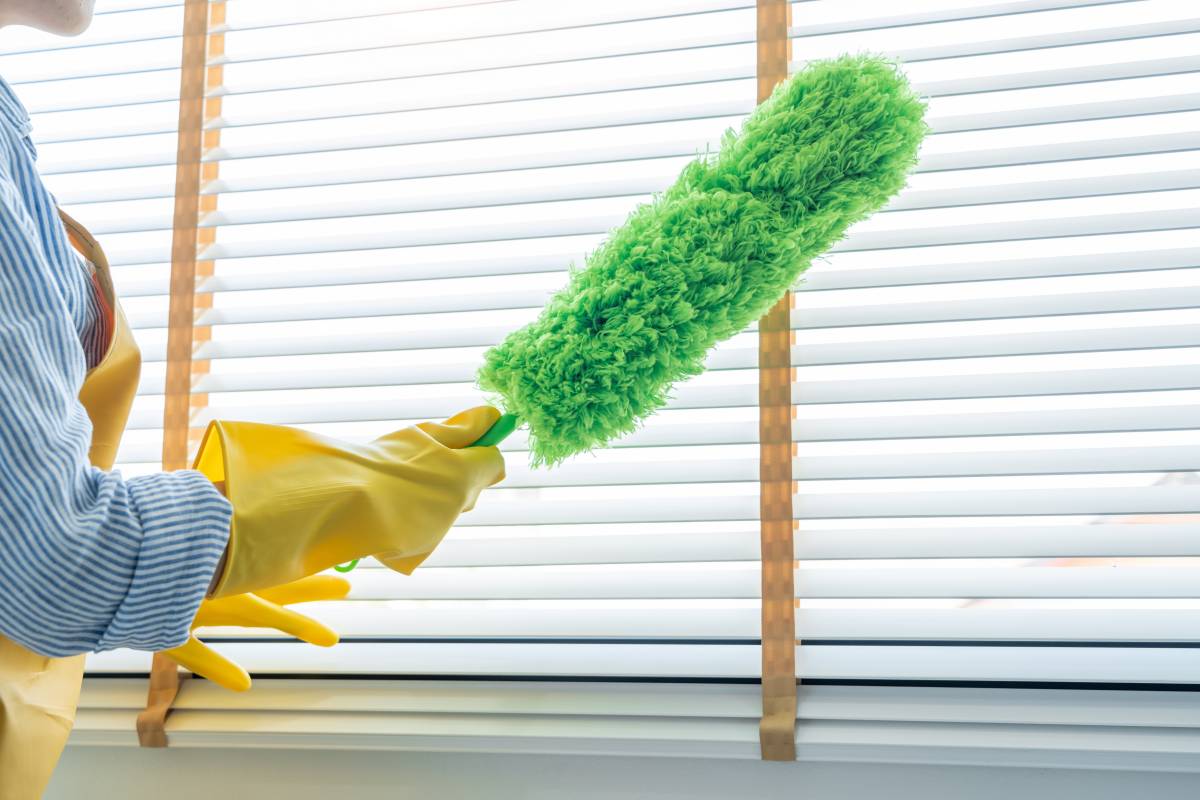
How to clean a duster
Read more
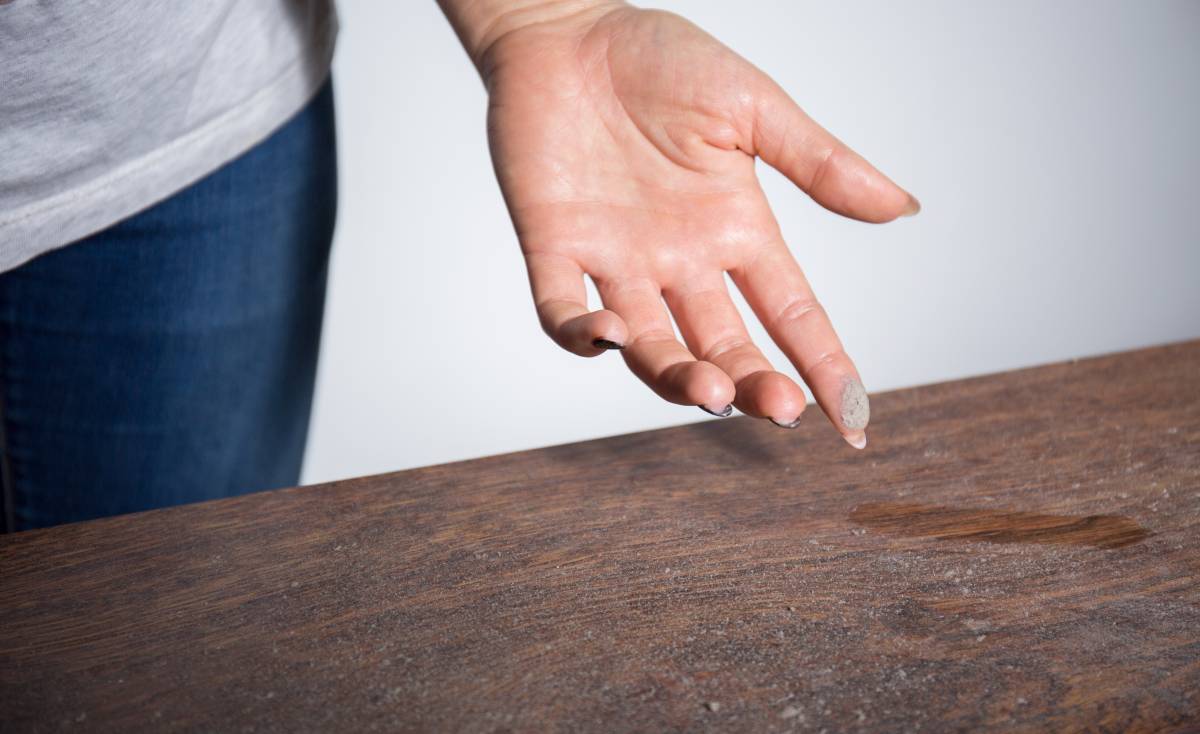
How to get rid of dust in your home
Read more
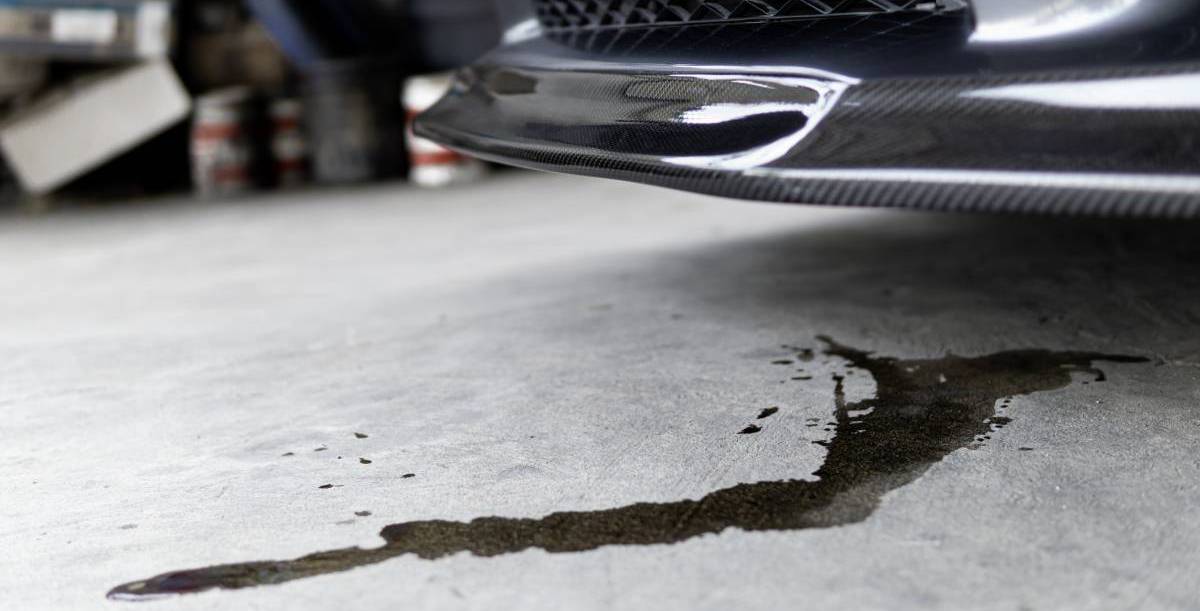
How to clean a garage floor
Read more
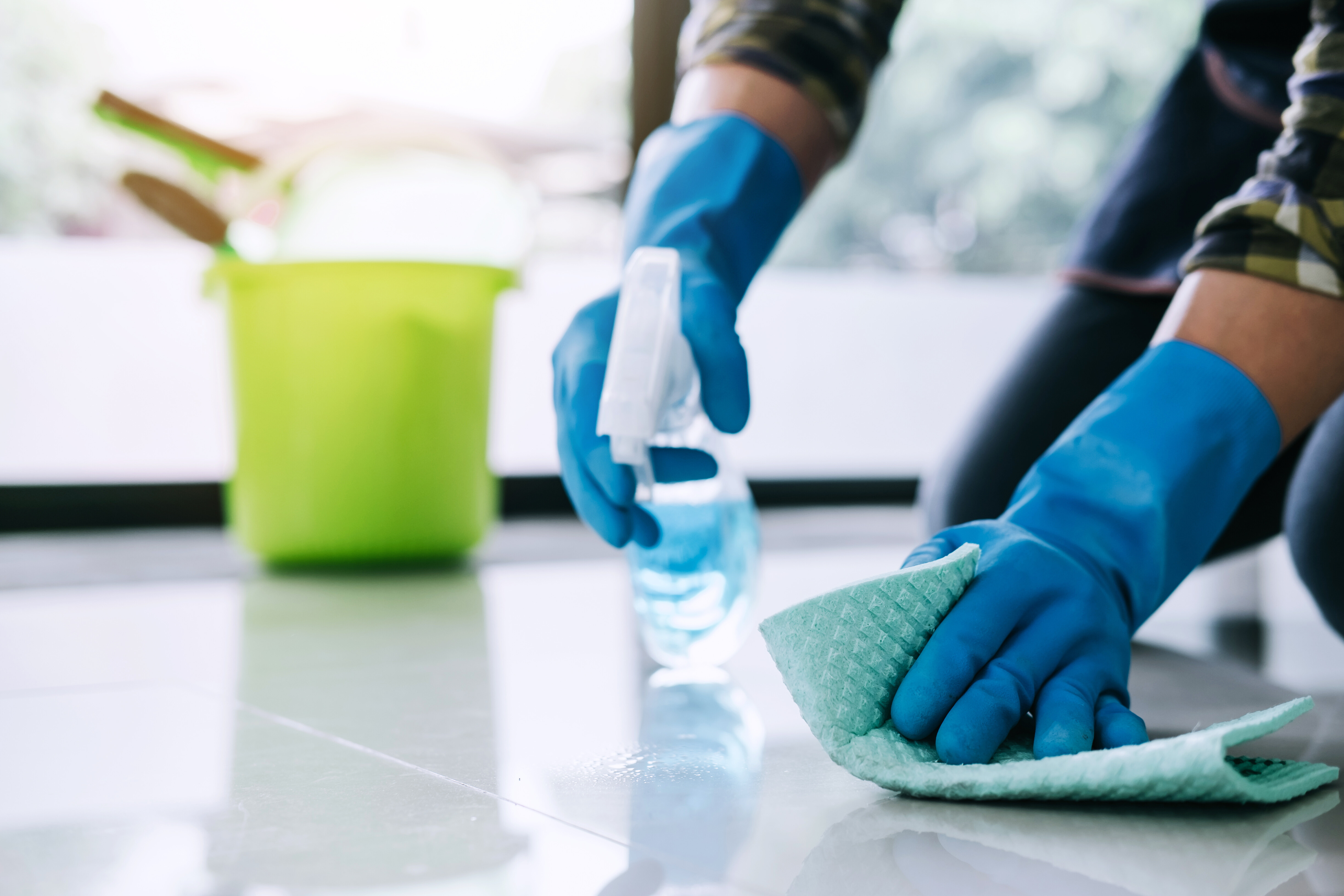
Move out cleaning checklist
Read more
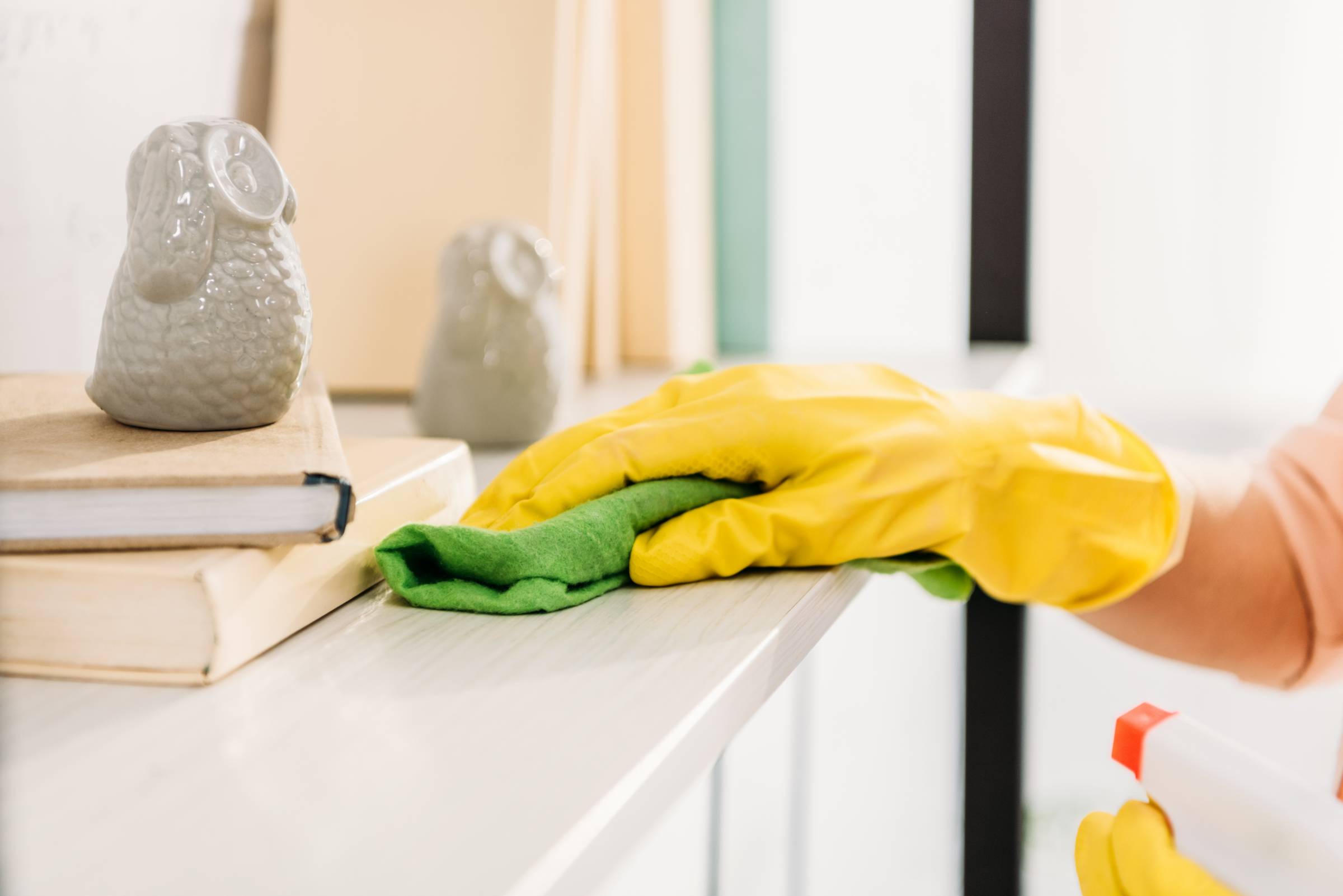
The ultimate spring cleaning checklist
Read more
